Plenty of extraordinary individuals have deeply shaped, influenced, and transformed the world around us. Despite history’s tendency to focus on men, many remarkable women have also made their mark.
Looking closer, we uncover thousands of stories of women whose contributions reverberate across time, from ancient civilizations to the modern day.
These unsung heroines defied societal norms, shattered glass ceilings, and challenged the status quo. They left a transformative legacy for generations to come.
Prepare to be inspired as – in no particular order – we explore the lives of these extraordinary pioneers, whose invaluable contributions have rewritten history, and whose legacies continue to inspire and empower.
1. Harriet Tubman (c. 1822-1913)
Harriet Tubman was an African-American abolitionist and humanitarian. She defied the shackles of slavery to liberate and inspire countless enslaved individuals.
Born into slavery, Tubman escaped and dedicated her life to rescuing others through the Underground Railroad. She led approximately 70 enslaved people to freedom.

Tubman’s remarkable efforts during the American Civil War as a spy, nurse, and scout further contributed to the Union’s cause. Her commitment to justice made her a symbol of the fight against oppression.
Tubman’s brave actions challenged the institution of slavery and laid the groundwork for the advancement of civil rights in the United States.
2. Marie Curie (1867-1934)
Marie Curie was a Polish-French scientist. She was the first woman to win a Nobel Prize, and the only individual to win the prize for two different scientific disciplines.
Curie’s research on radioactivity led to the discovery of two new elements, polonium, and radium. This revolutionized our understanding of atomic structure. Her work also laid the foundation for advancements in medical radiation treatments.
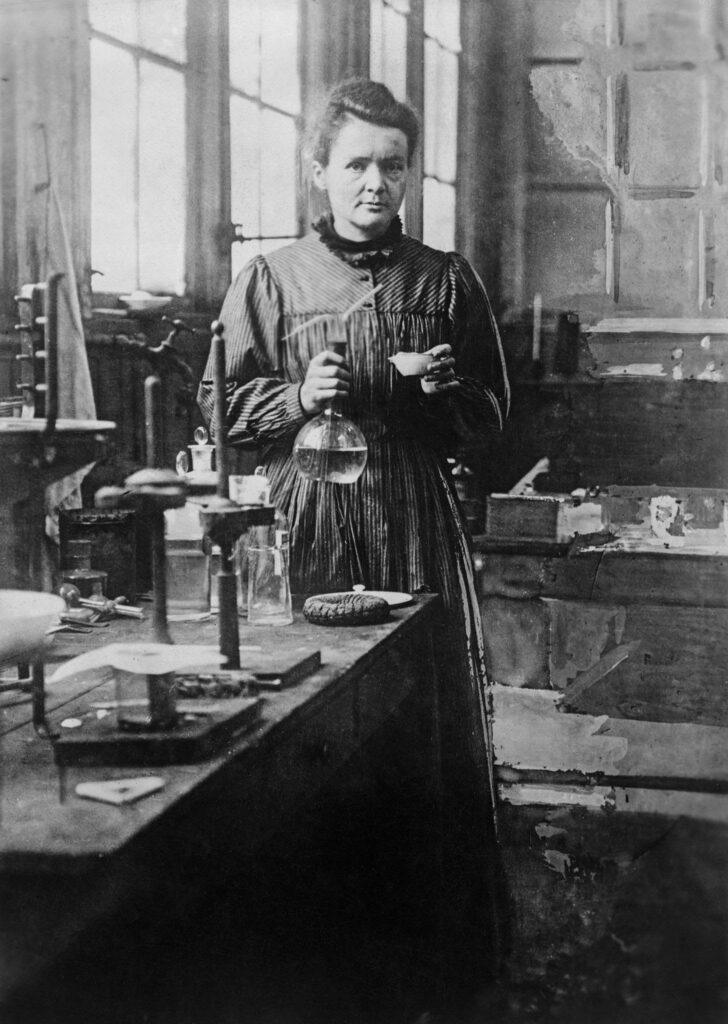
Curie’s relentless pursuit of knowledge in the face of gender discrimination challenged societal norms and opened doors for women in the sciences.
Her foundational discoveries continue to shape the fields of physics and medicine, leaving an enduring legacy in scientific achievement and gender equality.
3. Jane Austen (1775-1817)
Jane Austen was a renowned English novelist. She revolutionized the literary world with her portrayals of social dynamics, particularly the lives of women in early 19th-century England.

Through her works, such as “Pride and Prejudice,” “Sense and Sensibility,” and “Emma,” Austen examined the societal and class norms of her time. Her keen observations and wit challenged prevailing conventions and shed light on the limited options available to women in a patriarchal society.
Austen’s writing style and sharp social commentary laid the foundation for the development of the modern novel. Her influence transcends time. Her works continue to be celebrated for their timeless themes and enduring appeal.
4. Rosa Parks (1913-2005)
Rosa Parks was an African-American civil rights activist. She became a symbol of resistance against racial segregation in the United States.
In 1955, Parks did the unthinkable. She refused to give her bus seat to a white passenger, thereby sparking the Montgomery Bus Boycott.
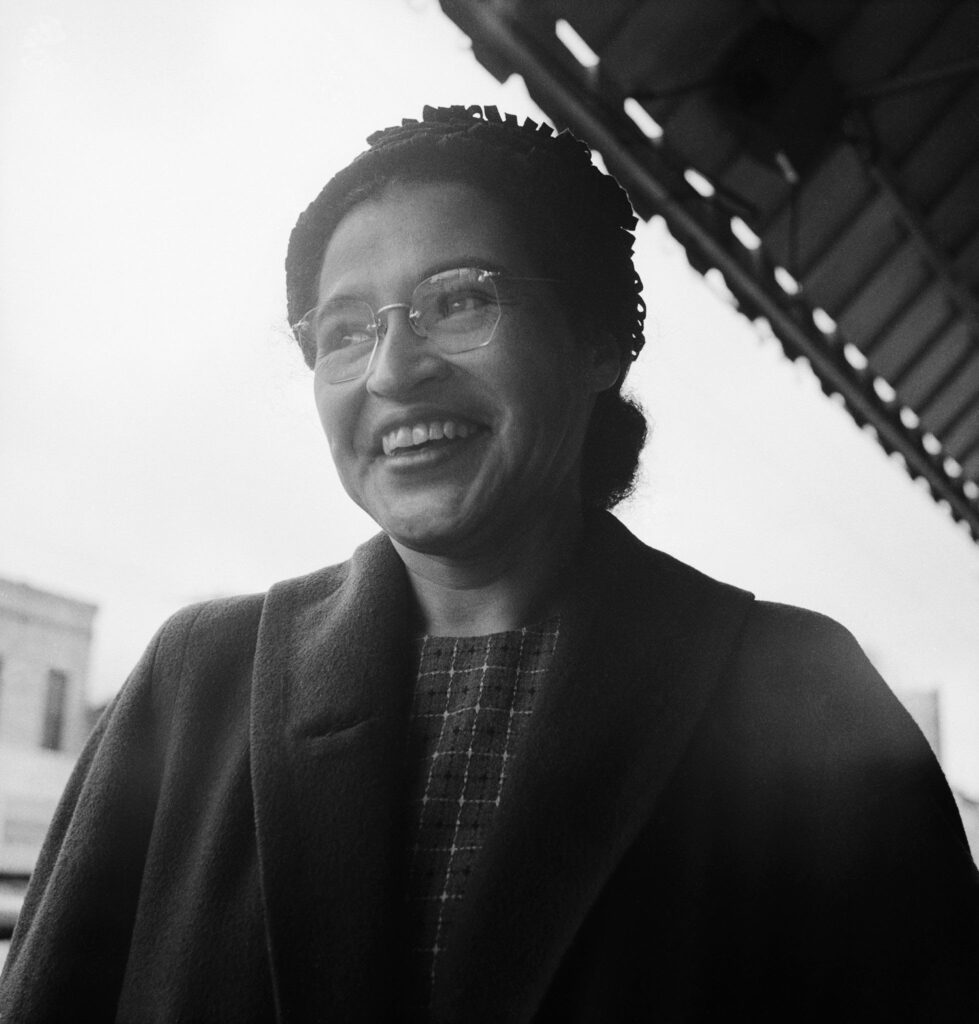
A wave of nonviolent protests followed. This eventually led to the desegregation of public transportation and inspired the broader Civil Rights Movement.
Parks’ courageous act undoubtedly influenced the landscape of racial segregation, galvanizing a nation in her wake. She serves as a reminder of the power of individual acts of resistance.
5. Princess Olga of Kiev (c. 890-969)
Princess Olga played a transformative role in the history of Kievan Rus’, an early East Slavic state.
Following her husband’s death, Olga assumed regency and embarked on a path of political and cultural reforms. She embraced Christianity and established it as the state religion.
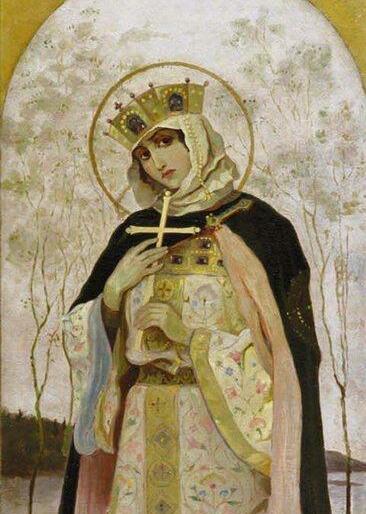
Olga’s conversion to Christianity laid the groundwork for the Christianization of Kievan Rus’. Her diplomatic efforts forged alliances with neighboring powers, elevating the Rus’ state. Through her leadership, Princess Olga transformed Kievan Rus’, leaving behind a legacy as a wise, fierce ruler.
Today, she is a saint in both the Catholic Church and the Eastern Orthodox Church.
6. Isabella I of Castile (1451-1504)
Isabella I was a formidable queen. She played a pivotal role in shaping the course of Spanish and European history.
Alongside her husband Ferdinand II of Aragon, Isabella unified the kingdoms of Castile and Aragon. They laid the foundation for the formation of modern Spain. Their reign was also marked by the establishment of the Spanish Inquisition and the support of Christopher Columbus’ expeditions and the discovery of the Americas.

Isabella’s patronage of arts, sciences, and education fostered a flourishing cultural and intellectual climate. This became known as the “Golden Age of Spain.”
Through her visionary leadership and strategic alliances, Isabella expanded the Spanish kingdom and kickstarted Spain’s emergence as a major world power.
7. Helen Keller (1880-1968)
Despite hardships that seemed insurmountable, Helen Keller grew up to be an influential figure in disability rights and education. She also became an author and activist.

At just 19 months old, Keller was left blind and deaf by an illness. With the guidance of her teacher, Anne Sullivan, she learned to communicate using finger-spelling and Braille. Against all odds, she would accomplish remarkable achievements, shattering all societal perceptions.
Keller’s relentless advocacy work thereafter raised awareness and improved the quality of life for countless individuals with visual and hearing impairments.
She championed social and political causes. Her work left an enduring impact on disability rights around the world and inspires all who hear her story.
8. Fatima al-Fihriya (c. 800-880)
Fatima al-Fihriya is best known for her founding of the University of Al Quaraouiyine in Fes, Morocco. Established in 859 CE, Al Quaraouiyine is the oldest existing degree-granting university in the world.
Al-Fihriya’s vision for education transformed the landscape of the Islamic world. The university became a center for academic excellence. It attracted scholars from all over and advanced science, philosophy, and Islamic studies.
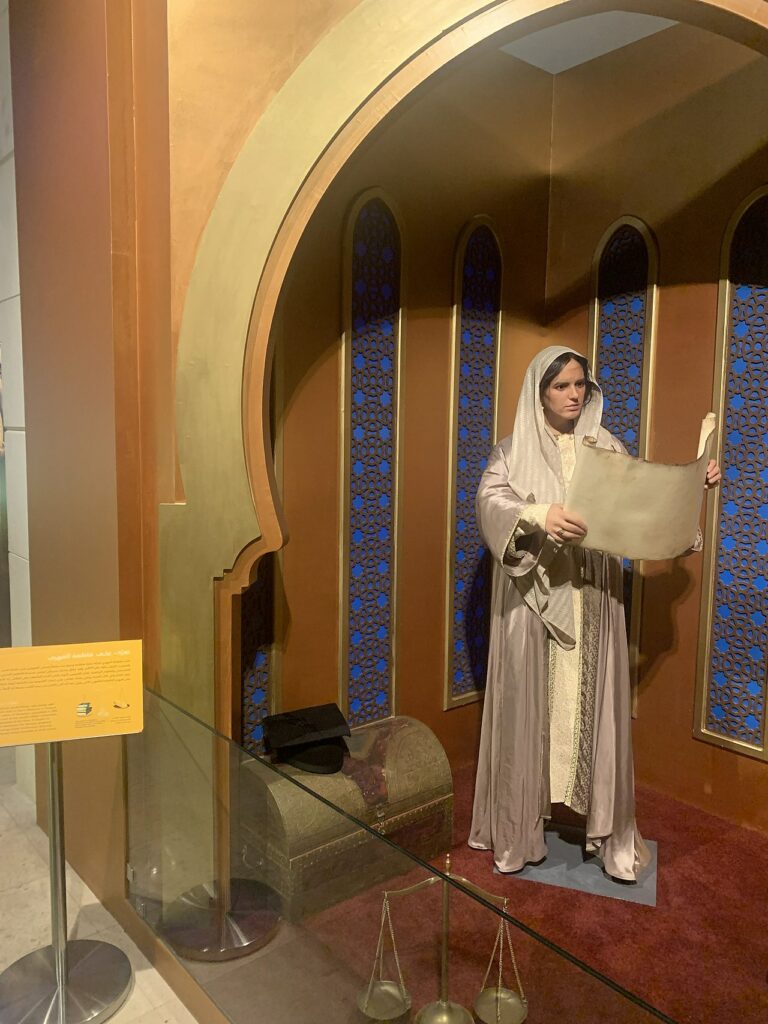
Fatima al-Fihriya’s creation of an educational institution that continues to thrive to this day transformed history by promoting intellectualism and Islamic culture for centuries.
9. Margaret Thatcher (1925-2013)
Margaret Thatcher was known as the “Iron Lady.” She reshaped both British and global politics during her tenure as the United Kingdom’s Prime Minister from 1979 to 1990.
As the UK’s first female Prime Minister, Thatcher implemented a series of conservative policies. This became known as Thatcherism. She emphasized free markets and reducing state intervention.

Her leadership and determination to curb the power of trade unions played a significant role in reshaping the British economy. Thatcher also oversaw Britain’s victorious Falklands War with Argentina.
Her policies had far-reaching implications, influencing economic and political ideologies worldwide. Margaret Thatcher is considered one of the most influential and controversial figures in modern history.
10. Rosalind Franklin (1920-1958)
Rosalind Franklin was a British chemist and crystallographer. She made significant contributions to the field of molecular biology, particularly in understanding the structure of DNA.
Through her pioneering work in X-ray diffraction techniques, Franklin obtained crucial data and images of DNA fibers, including the iconic Photo 51. Her findings provided critical insights into the helical structure of DNA. This laid the foundation for the discovery of its double helix by James Watson and Francis Crick.
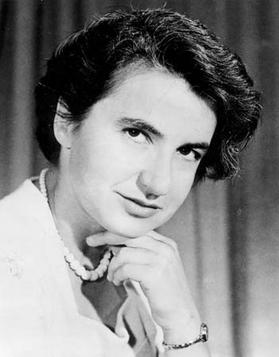
Although her work was initially undervalued, Franklin’s transformative research was eventually recognized for its profound impact on genetics and the fundamental building blocks of life.
11. Jane Addams (1860-1935)
Jane Addams was an American social reformer and activist. She revolutionized the field of social work and tirelessly advocated for the rights and well-being of marginalized communities.
As a co-founder of Chicago’s Hull House, Addams pioneered the concept of settlement houses. These provided services and resources to poor immigrants and working-class individuals.
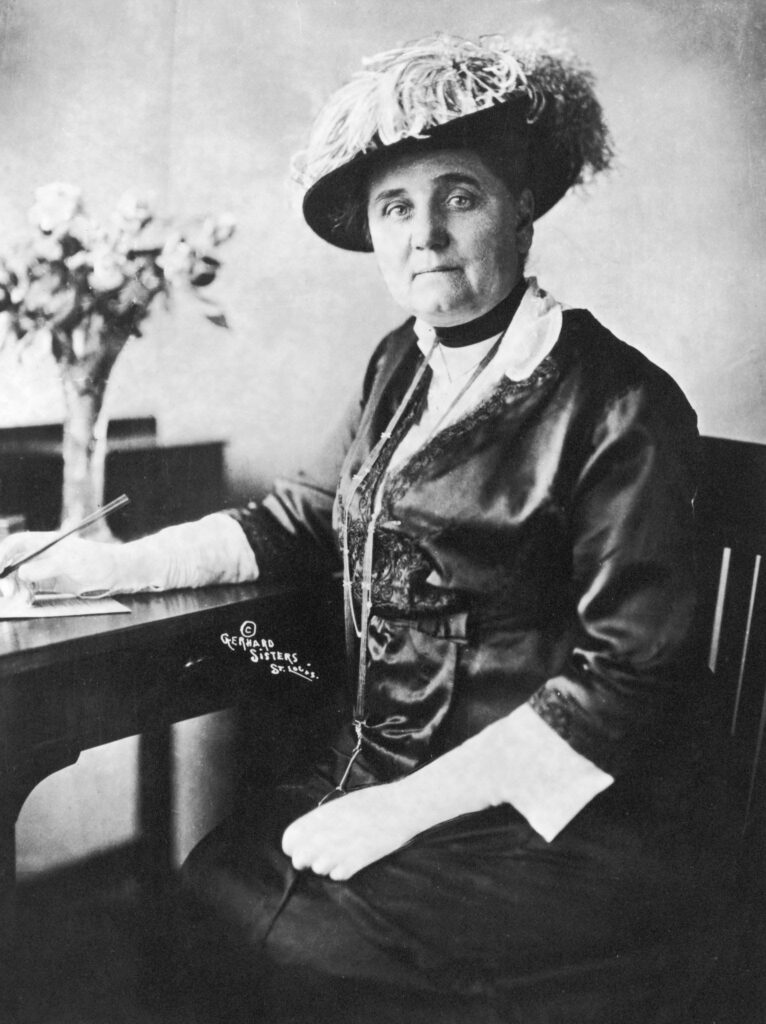
Addams was also a champion of women’s suffrage, peace activism, and social justice. She became the second woman to receive the Nobel Peace Prize.
Her efforts not only improved the lives of countless individuals but also set a lasting precedent for social welfare in the United States.
12. Anne Frank (1929-1945)
Anne Frank is one of the most recognizable figures in modern history. A Jewish girl from Germany, her intimate diary captured the horrors she faced during the Holocaust.
While hiding from Nazi persecution, Anne Frank chronicled her thoughts, hopes, and fears in her diary.
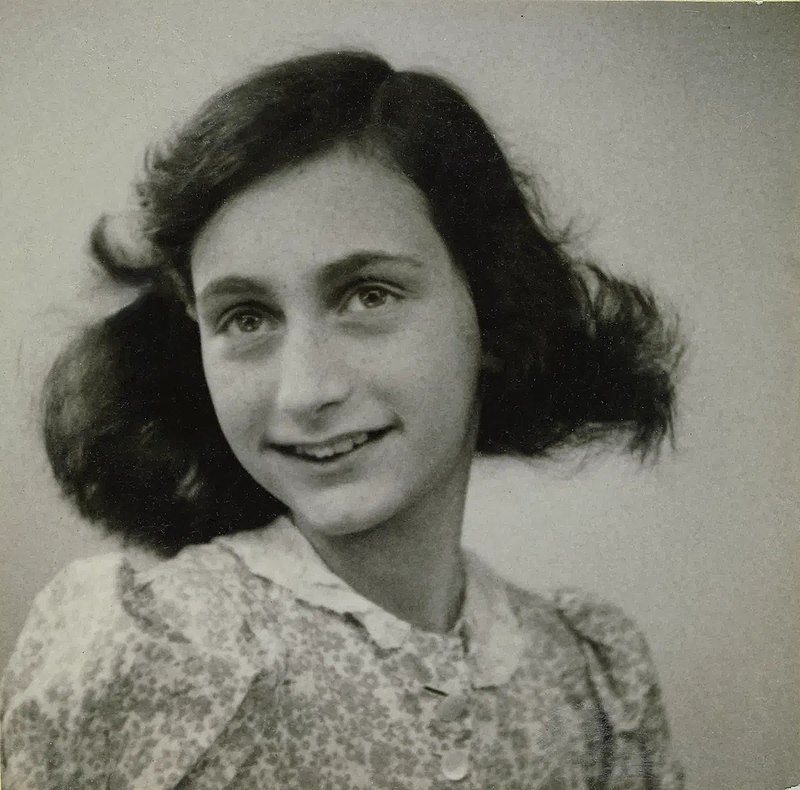
After her death in a concentration camp, her diary, “The Diary of a Young Girl,” was published. It became a compelling, worldwide sensation and shed light on the horrors and atrocities of the Holocaust.
Anne Frank’s powerful words continue to educate and inspire generations. Her diary reminds us of the importance of empathy, tolerance, and the pursuit of peace. Her diary stands as a testament to both the best and worst of humanity.
13. Joan of Arc (c. 1412-1431)
Joan of Arc was also known as the Maid of Orleans. She single-handedly transformed the course of the Hundred Years’ War.
As a young peasant, Joan claimed to receive divine visions instructing her to aid the Dauphin in reclaiming France from English control. Fearless and determined, she convinced the dauphin to grant her an army. Under her leadership, French victories turned the tide of the war.
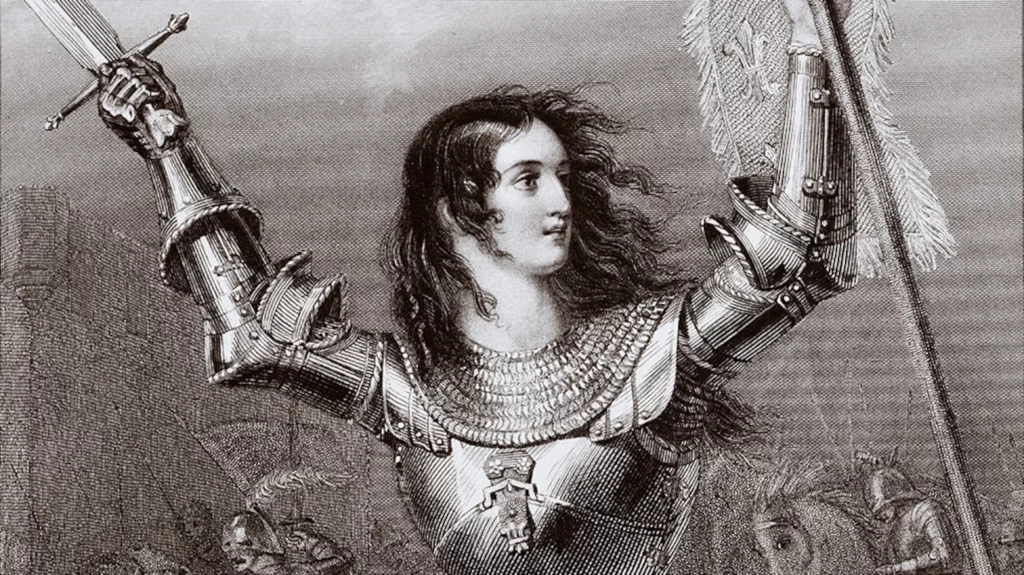
Joan’s military prowess and charismatic leadership inspired hope among the French people. Despite being captured, she refused to renounce her beliefs, leading to her trial and execution.
Joan of Arc’s courage transformed her into a symbol of French unity and resistance, and today, she is a patron saint of France.
14. Frida Kahlo (1907-1954)
Frida Kahlo’s work is recognizable the world over. The renowned Mexican artist transformed the world of art with her distinctive style and self-expression.
Despite a tumultuous, difficult life, Kahlo channeled her experiences into her evocative and introspective paintings. Her vibrant works symbolized identity, feminism, and Mexican culture. She challenged artistic conventions and redefined the role of women in art.
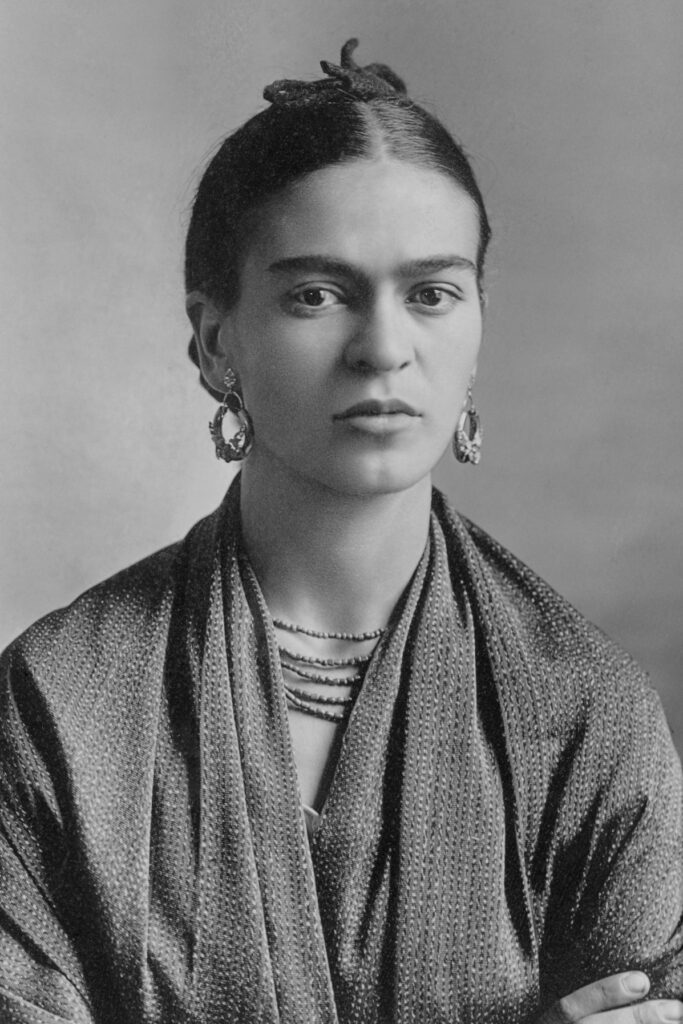
Kahlo’s artistry revolutionized the portrayal of the female experience. She became a voice for marginalized communities, inspiring generations of artists to come.15. Taytu Betul (1851-1918)
Taytu Betul was an Ethiopian empress during the late 19th and early 20th centuries. As the wife of Emperor Menelik II, she was known for her political acumen and active involvement.
She played a significant role in diplomatic negotiations, military strategy, policymaking, and the overall affairs of the Ethiopian Empire.
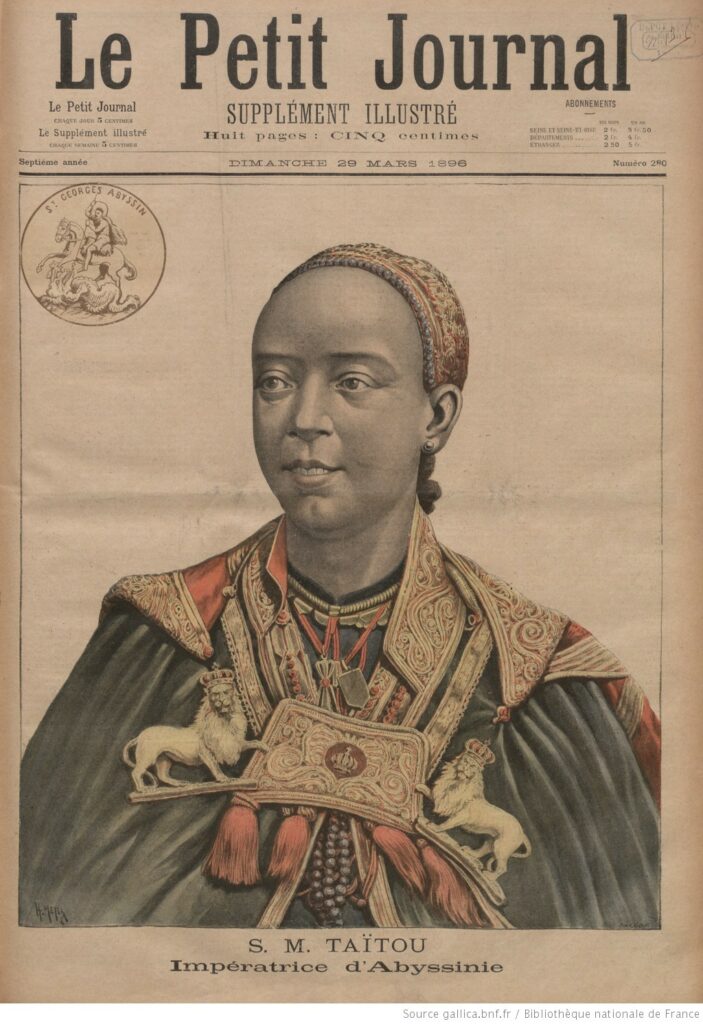
Taytu Betul’s leadership was crucial in thwarting Italy and European colonial powers. This allowed Ethiopia to maintain its independence. Her contributions undoubtedly shaped both Ethiopia’s and Africa’s entire history from that point onward.
16. Madeleine Albright (1937-2022)
Born in Prague, Madeleine Albright would thoroughly influence American and European history in her lifetime. She was a trailblazing American diplomat and politician. She made history as the first woman to serve as United States Secretary of State.
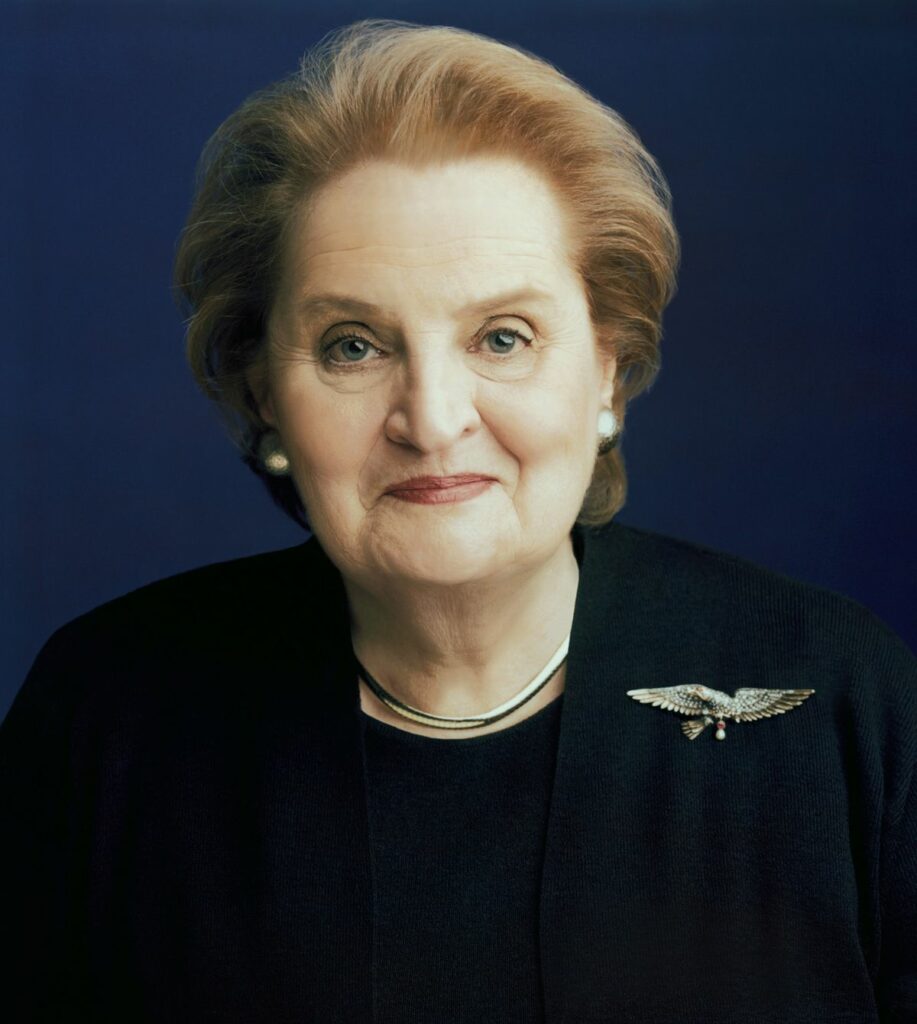
Appointed by President Bill Clinton, Albright was crucial in shaping U.S. foreign policy from 1997 to 2001. She focused on promoting democracy, human rights, and global stability.
Albright was instrumental in the negotiation and implementation of the Dayton Accords, which brought an end to the Bosnian War. She also played a key role in NATO expansion and in addressing international crises, including the Kosovo conflict.17. Mary Wollstonecraft (1759-1797)
A British writer and philosopher, Mary Wollstonecraft and her influential work heavily advocated for women’s rights and gender equality.
In her seminal work “A Vindication of the Rights of Woman,” published in 1792, Wollstonecraft argued passionately for women’s education and their right to participate in the public sphere.
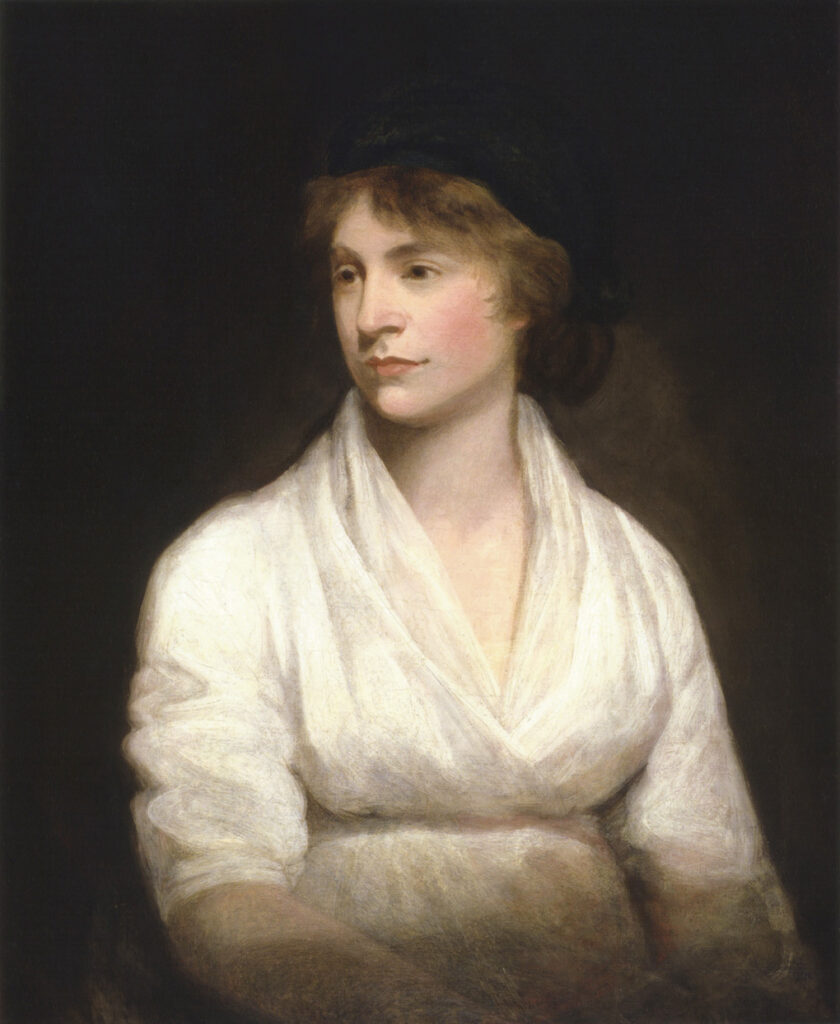
She challenged prevailing societal norms and championed the idea that women possess equal intellect to men. Wollstonecraft’s ideas laid the foundation for the feminist movement and influenced generations of activists.
Her advocacy for women’s rights and her call for societal reform continue to resonate, making her a pivotal figure in the history of feminism.
18. Queen Elizabeth I of England (1533-1603)
Queen Elizabeth I of the Tudor dynasty shaped the course of English history forever during her reign. She was one of its most influential monarchs.
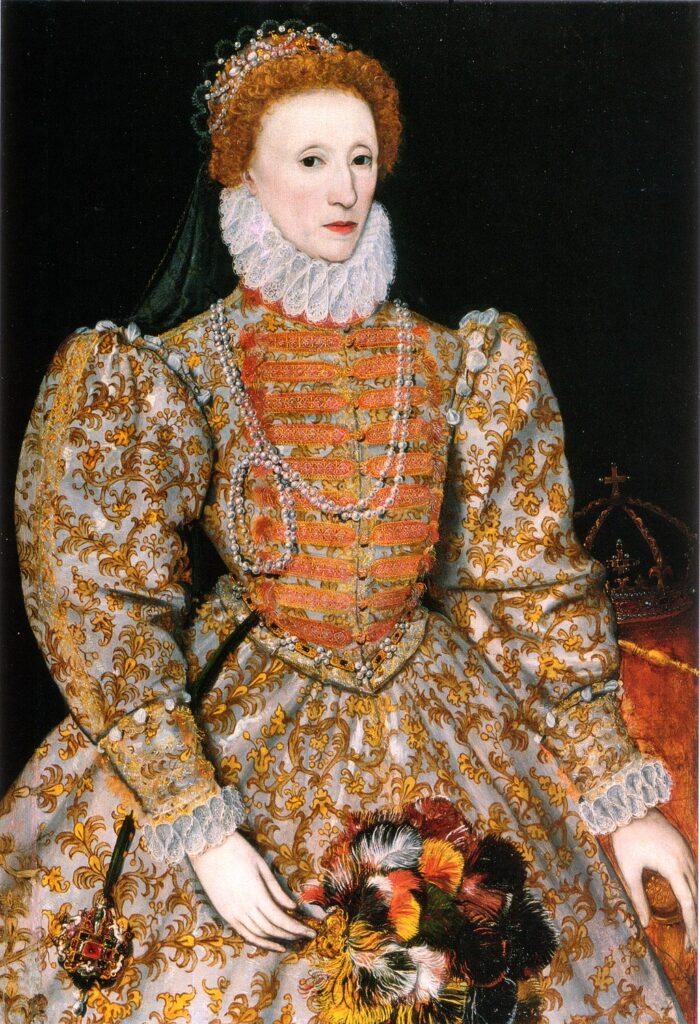
Elizabeth ascended to the throne in 1558. She skillfully navigated a politically and religiously divided kingdom during a golden age of arts, literature, and exploration.
Elizabeth’s rule promoted religious tolerance and stability. It fostered a time of relative peace after a tumultuous period. Her leadership solidified England’s emergence as a world power, especially after the defeat of the Spanish Armada.
Elizabeth’s reign marked an entire era – the Elizabethan Age – of English culture, politics, and history.
19. Nefertiti (c. 1370-1330 BC)
The legacy of Nefertiti, an ancient Egyptian queen, is as iconic and influential as it is mysterious and fascinating.
As the wife of Pharaoh Akhenaten, Nefertiti played a pivotal role in Egypt’s Amarna Period. She was known for her beauty, but Nefertiti’s impact extended beyond her aesthetic appeal.
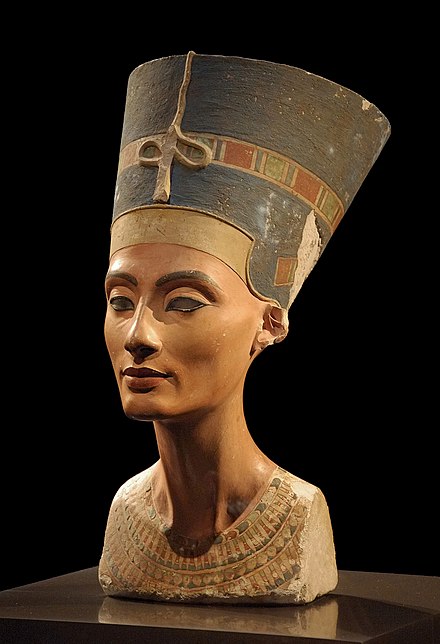
Alongside her husband, she advocated for the worship of a single deity, the sun disk Aten. This challenged the traditional polytheistic religious practices of ancient Egypt.
This religious revolution marked a significant shift in Egyptian spirituality and politics. It deeply transformed the ancient civilization and shaped its entire history to come.
20. Maya Angelou (1928-2014)
Maya Angelou was an acclaimed American poet, author, and civil rights activist. She left a deep, lasting mark on US history.
Her famous literary works, such as “I Know Why the Caged Bird Sings,” captured the experiences of African Americans, particularly Black women, in America. Angelou’s words resonated deeply. They inspired and influenced generations of Americans, especially in marginalized communities.
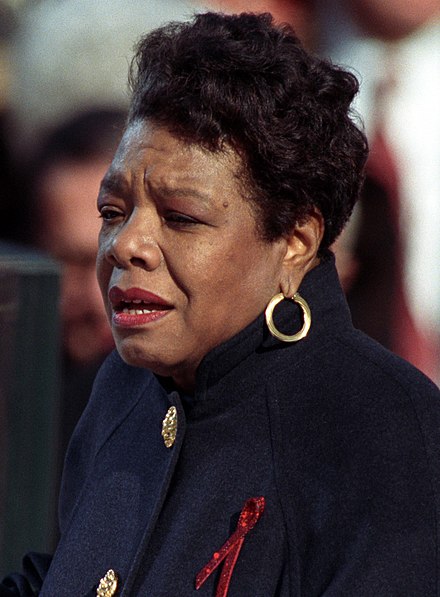
Beyond her literary contributions, she actively participated in the civil rights movement. She worked alongside prominent leaders like Martin Luther King Jr.
Angelou’s impact as a writer and activist continues to ignite conversations, challenge norms, and uplift voices that were often silenced, making her a literary and cultural icon of immense significance.
21. Oprah Winfrey (1954-)
We all know Oprah Winfrey. She is an influential American media mogul, philanthropist, and talk show host. She has had an unparalleled impact on modern media and entertainment.
With “The Oprah Winfrey Show,” she pioneered a new era of television talk shows. Her shows tackle a wide range of topics and bring important discussions into millions of homes.

Her authentic and empathetic interviewing style resonated with audiences worldwide, making her a trusted and beloved figure.
Beyond her media achievements, she has used her platform to champion various social and humanitarian causes, including education, empowerment, and the fight against poverty.
22. Cleopatra (69-30 BC)
Cleopatra is among the most recognizable figures in all of world history.
She was the last ruler of the Ptolemaic Kingdom of Egypt. As the last pharaoh, Cleopatra forged alliances with powerful Roman leaders, most notably Julius Caesar and Mark Antony. This was done in an effort to maintain Egyptian independence.
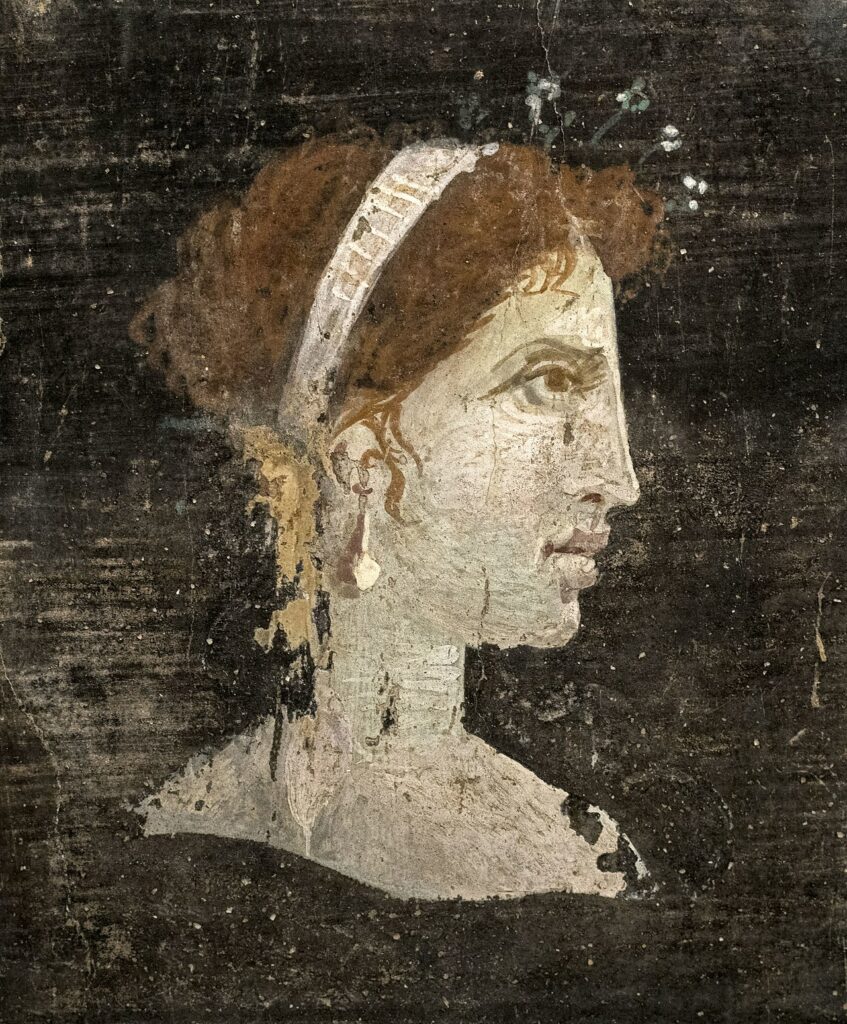
Her intelligence, charm, and diplomacy made her a powerful ruler and allowed her to exert significant influence on Roman politics.
Cleopatra’s reign marked a pivotal period in the ancient world. Her tragic end furthered her enigmatic legacy, making her an enduring symbol of power, intrigue, and female leadership.
23. Ada Lovelace (1815-1852)
Ada Lovelace made history as the world’s first computer programmer.
Collaborating with Charles Babbage, the inventor of the Analytical Engine, a precursor to modern computers, she wrote extensively about the machine. She recognized its potential to go beyond calculation and she envisioned its capabilities for creating music, art, and even artificial intelligence.
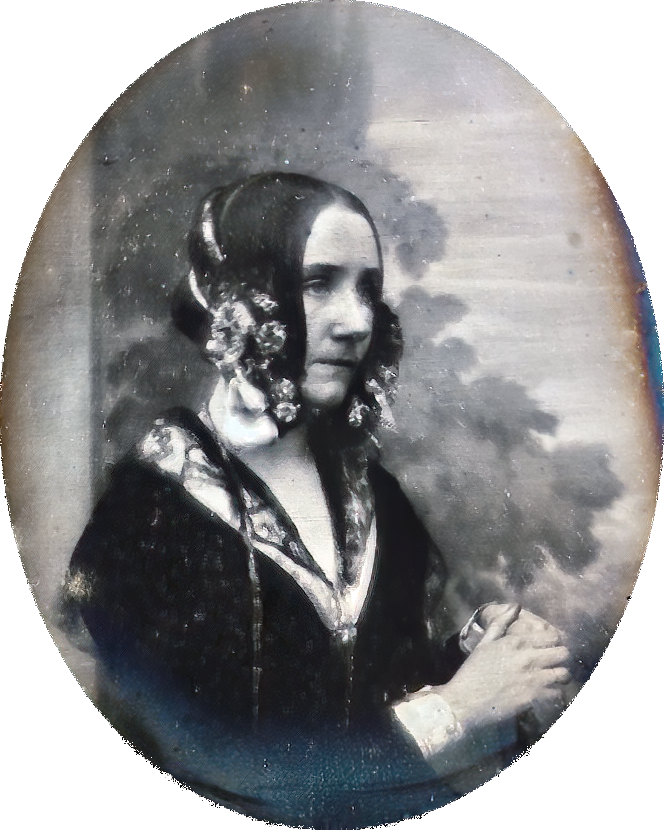
Lovelace’s visionary insights laid the groundwork for future developments in the field, including the concept of a “loop” and the idea of using codes to manipulate symbols. This set a precedent for modern programming languages.
Ada Lovelace’s pioneering contributions continue to shape computer science and technology today.
24. Eleanor Roosevelt (1884-1962)
She was the wife of President Franklin D. Roosevelt, and she redefined the role of First Lady. Eleanor Roosevelt would eventually be seen as an influential diplomat and activist in her own right.
Roosevelt was pivotal in the drafting and adoption of the Universal Declaration of Human Rights. She also became the first chair of the UN Commission on Human Rights.
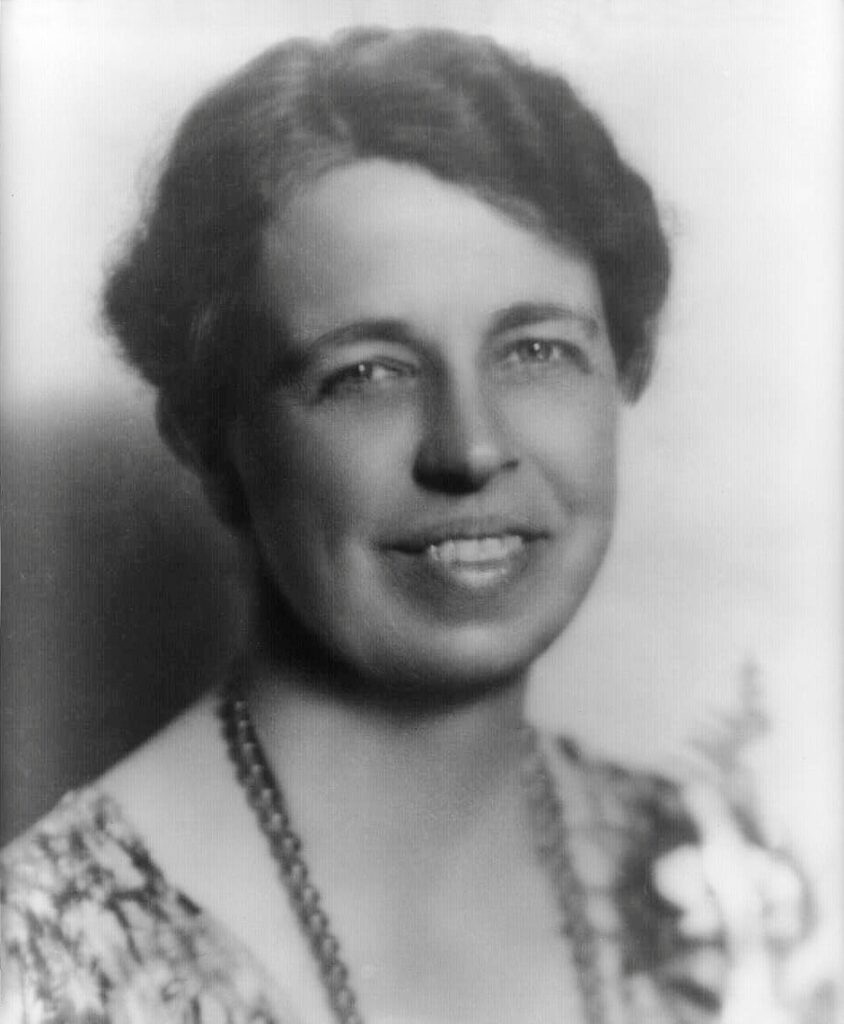
Her commitment to equality and justice made a profound impact on global politics. It reshaped the discourse on human rights and set a precedent for future generations. Eleanor Roosevelt’s unwavering dedication to social progress continues to inspire individuals around the world.
25. Florence Nightingale (1820-1910)
Florence Nightingale was a 19th-century British nurse. She revolutionized the fields of nursing and healthcare.
The “Lady with the Lamp” made her mark in the Crimean War, where she tended to wounded soldiers. There, she emphasized the importance of hygiene, proper nutrition, and compassionate care. She saved many lives and laid the foundation for modern nursing.
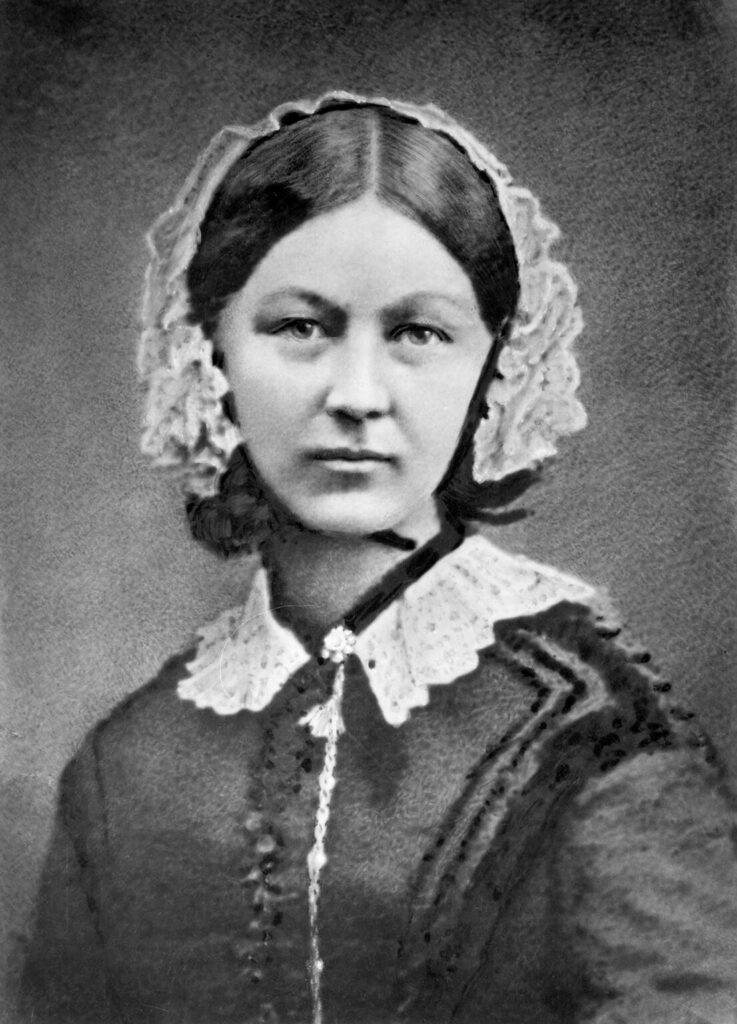
Nightingale’s tireless advocacy for healthcare reform led to the establishment of the first nursing school, the Nightingale Training School for Nurses. Florence Nightingale’s lasting impact on nursing and medicine elevated the profession and improved patient care worldwide.
26. Virginia Woolf (1882-1941)
Virginia Woolf is widely considered to be one of the most important and innovative authors of the 20th century.
A member of the Bloomsbury Group, Woolf challenged conventional narrative structures and delved into themes of gender, sexuality, and mental health. Her works, like “Mrs. Dalloway,” “To the Lighthouse,” and “A Room of One’s Own,” pushed the boundaries of literature.
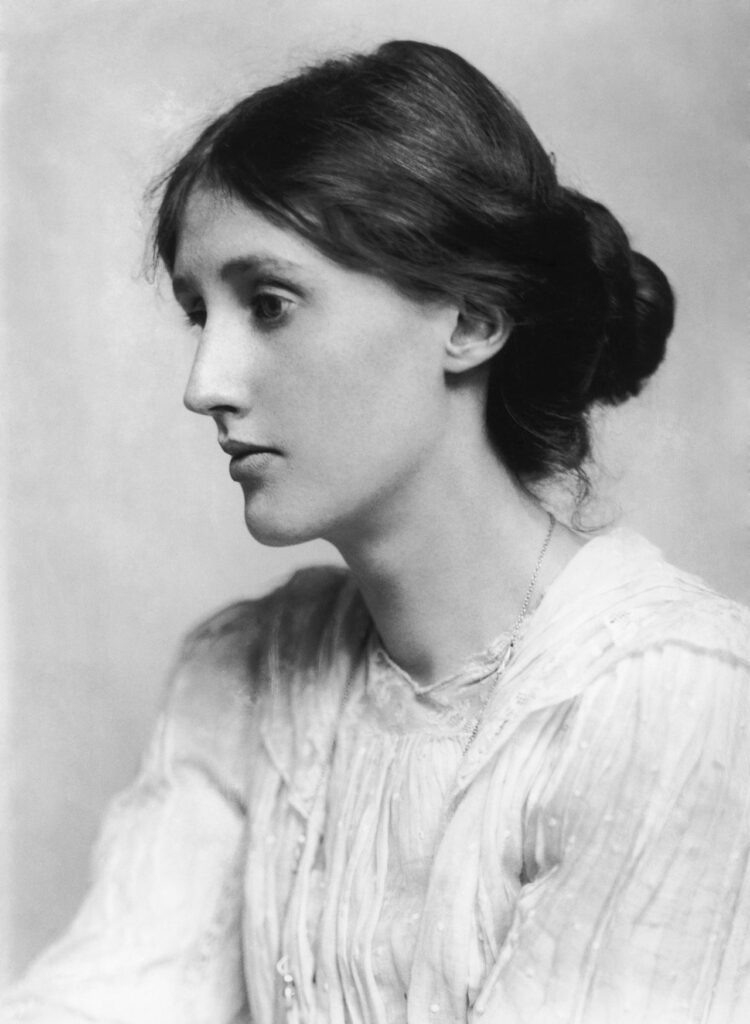
Woolf’s innovative stream-of-consciousness technique and introspective narratives continue to inspire writers and readers alike. Her style reshaped the literary landscape and challenged societal norms. Virginia Woolf’s impact on literature and feminism cement her transformative place in history.
27. Wu Zetian of China (624-705)
Empress Wu was remarkable for being the only woman to rule China in her own right.
Rising from concubine to empress consort, regent, and eventually the empress dowager, Wu Zetian wielded significant power during the Tang Dynasty.
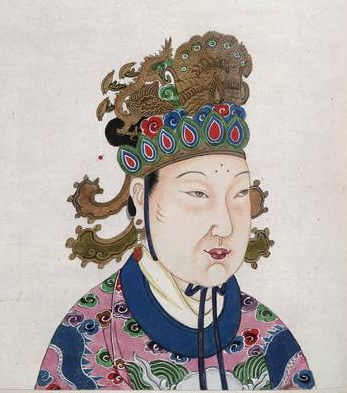
A strong leader, she implemented a series of reforms. She promoted education, expanded the civil service, and enhanced women’s rights. Under her rule, China grew richer, more powerful, and its culture flourished.
Wu Zetian’s reign also marked a remarkable period of female empowerment. Today, some historians go so far as to proclaim Empress Wu as one of the greatest emperors in Chinese history.
28. Sojourner Truth (1797-1883)
Born a slave named Isabella Baumfree, Sojourner Truth left a lasting legacy as a prominent African-American abolitionist and women’s rights activist.
After escaping slavery, she became a powerful voice in the fight against it. Her powerful speeches rocked the nation, including her famous speech, “Ain’t I a Woman?” delivered in 1851.
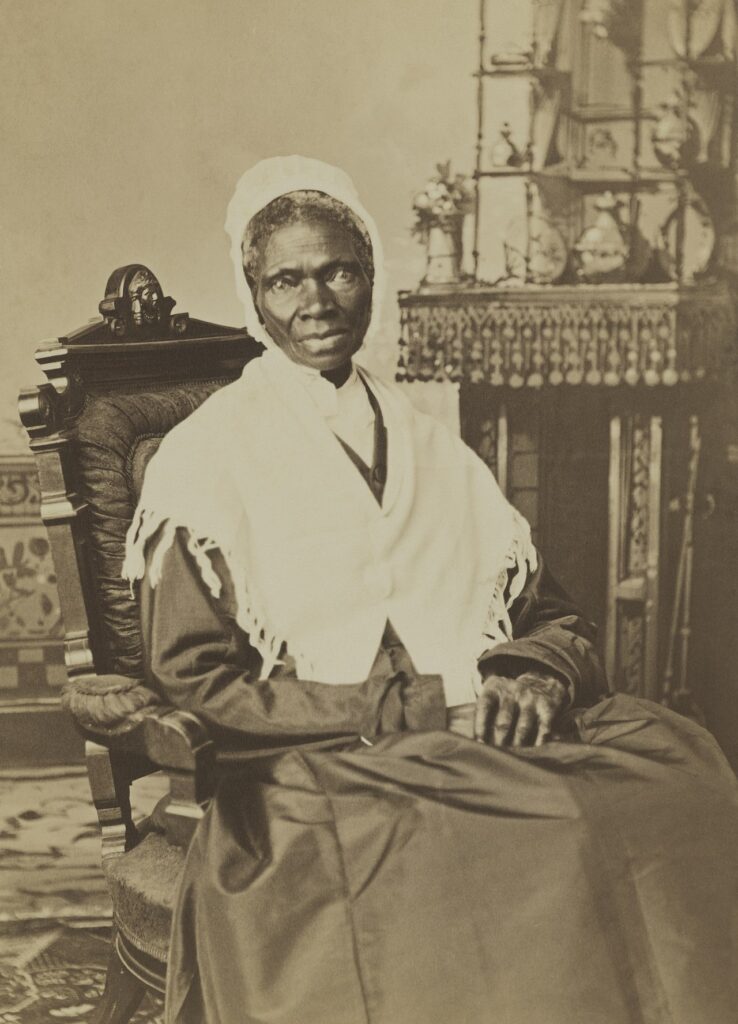
Truth’s tireless advocacy for abolitionism and the suffrage movement played a monumental role in shaping American history. Sojourner Truth remains an enduring symbol of all that she fought for.
29. Hatshepsut (c. 1507-1458 BC)
Hatshepsut is known to us today as one of the most successful female rulers in Egyptian history.
She ascended to the throne as a regent for her stepson, Thutmose III. She eventually broke with tradition and established herself as a legitimate pharaoh.
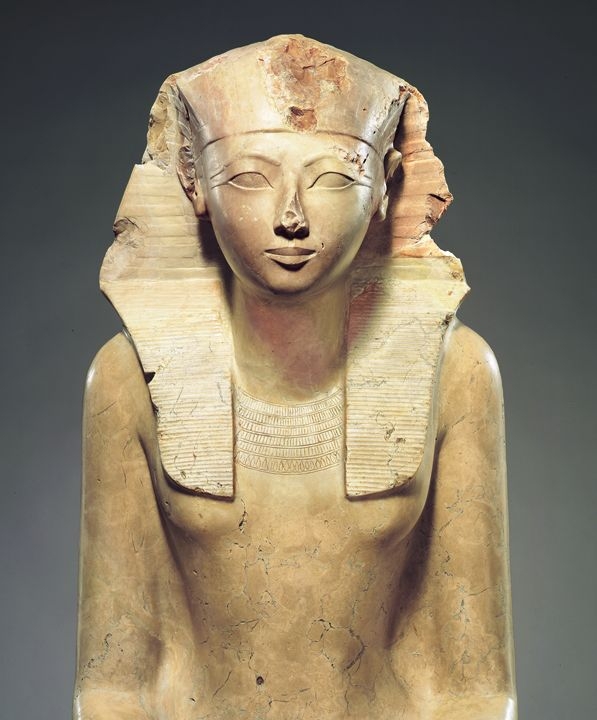
Hatshepsut’s reign saw remarkable building projects, trade expeditions, and political stability. She expanded trade networks and commissioned grand architectural achievements, such as her mortuary temple at Deir el-Bahari.
With her ability to navigate and consolidate power in a male-dominated society transformed Egypt, Hatshepsut left behind a legacy as a powerful and influential female leader.
30. Angela Davis (1944-)
Angela Davis was an influential American activist, scholar, and author known for her advocacy for civil rights, social justice, and prison abolition.
She was a prominent figure in the Black Power and Communist movements of the 1960s and 1970s. Davis became known for her outspoken criticism of racial injustice and systemic oppression.
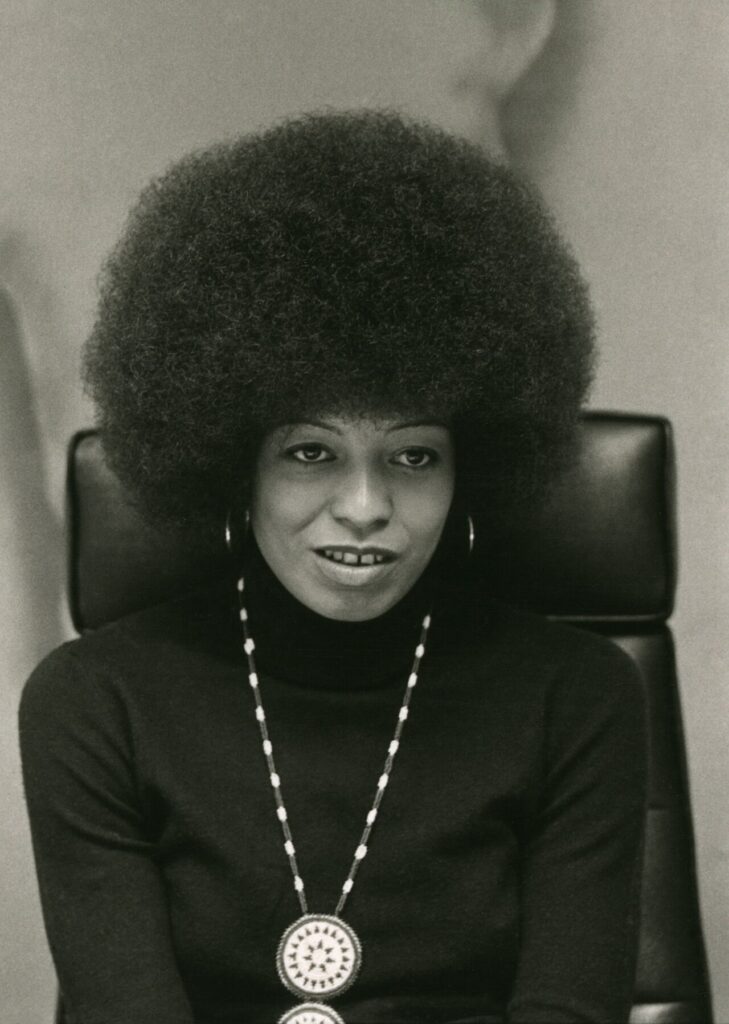
She fought against racial discrimination, gender inequality, and the prison-industrial complex. She drew attention to the intersections of race, class, and gender in the struggle for liberation.
Davis’ powerful speeches and writings have inspired generations and continue to challenge societal norms and ignite conversations about change in America.
31. Amelia Earhart (1897- c. 1937)
Amelia Earhart was an aviation pioneer and advocate for women’s rights. She made history through her groundbreaking accomplishments in aviation.
She was best known for being the first woman to fly across the Atlantic Ocean solo. Earhart shattered records and societal expectations, inspiring generations of women around the world.
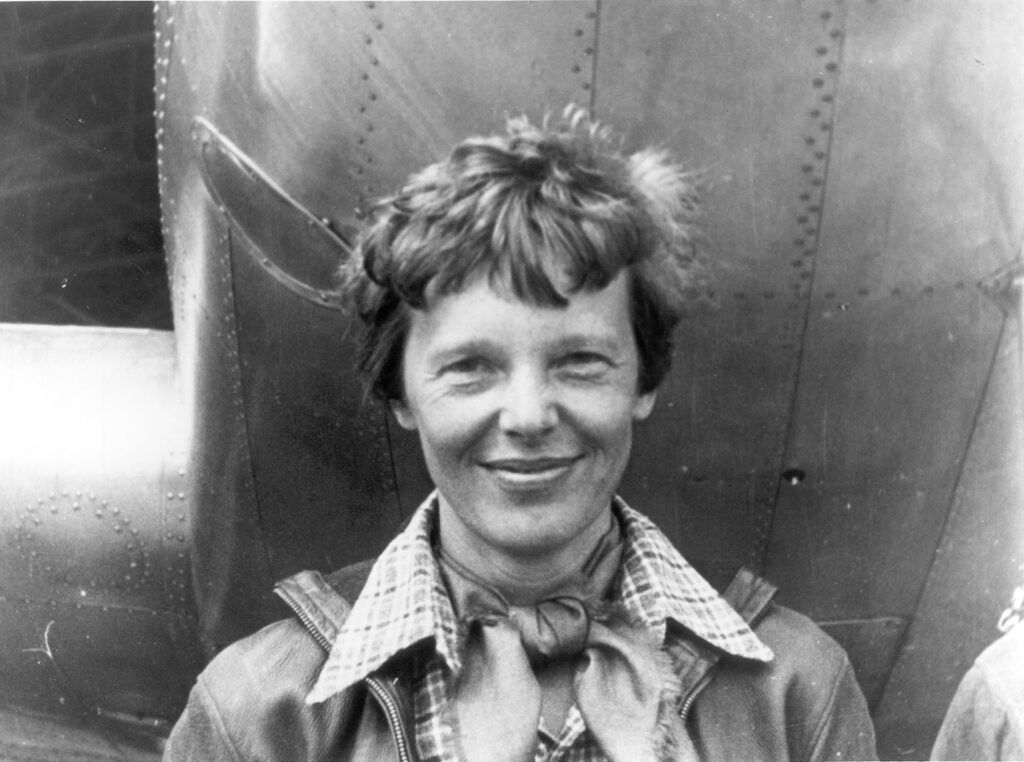
Her daring flights pushed the boundaries of what was deemed achievable in aviation, challenging closely-held norms. Leveraging her fame and influence, she advocated for gender equality, motivating women to enter traditionally male-dominated professions.
Her mysterious disappearance during her attempt to circumnavigate the globe remains unsolved. But her legacy remains as an icon of female empowerment and a trailblazer in aviation.
32. Mother Teresa (1910-1997)
Mother Teresa dedicated her life to serving those in need. She transformed thousands of lives and became a global symbol of compassion.
She founded the Missionaries of Charity in 1950. Its mission was to provide care to those that were poor, ill, orphaned, and dying. Mother Teresa’s selfless devotion and commitment to the most vulnerable became a powerful example of humanitarian work.

Her efforts earned her numerous accolades and global recognition, including the Nobel Peace Prize in 1979.
Mother Teresa’s impact transcends borders, religions, and cultures, reminding humanity of the power of kindness, empathy, and service to others.
33. Empress Theodora (c. 500-548)
Theodora, the Empress of Byzantium, left her mark on history in her influential role as a political and social reformer.
As the wife of Emperor Justinian I, Theodora exercised significant power and used her position to advocate for the rights of women. She played such an active role in legislation and policy-making that many believed she was the true ruler, not Justinian.
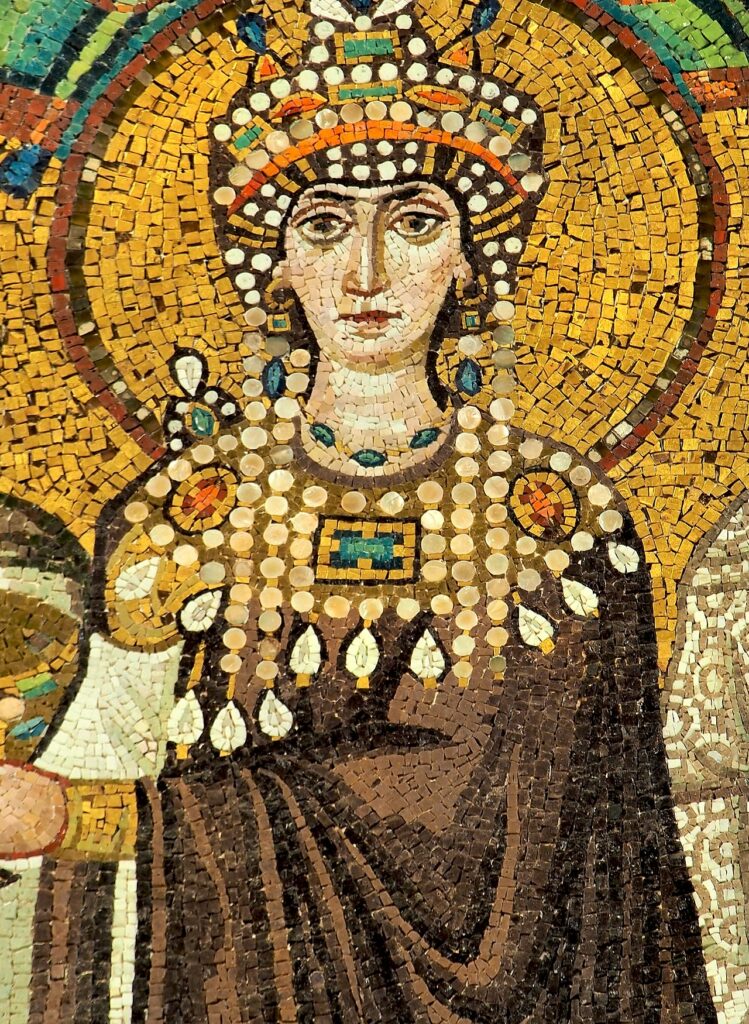
Theodora also supported initiatives to provide assistance and opportunities for marginalized individuals, including prostitutes and actresses.
Her strong leadership and progressive policies forever transformed the Byzantine Empire.
34. Queen Elizabeth II of England (1926-2022)
Queen Elizabeth II is one of the most distinguished women in modern memory. She was the longest-reigning monarch in Britain’s history.
As the Queen of the United Kingdom and other Commonwealth realms, she witnessed and navigated multiple world wars and societal changes. She provided a steady presence during times of crisis and embraced modernization while upholding traditions.
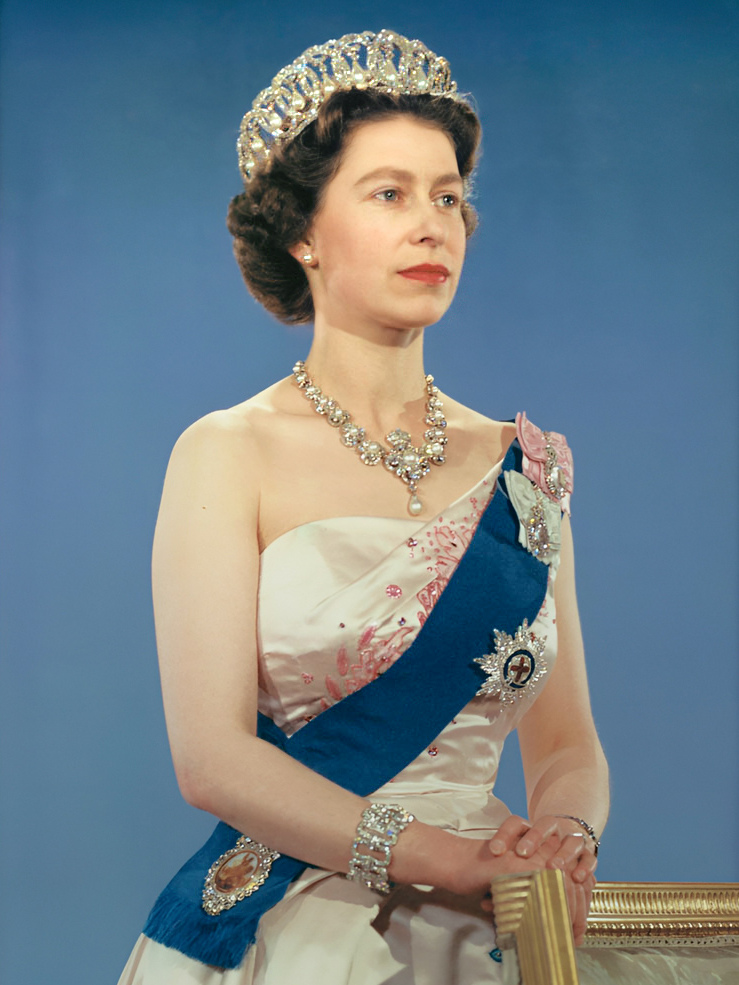
Her remarkable reign saw the transformation of the British monarchy and led the royal family into modernity.
With her recent passing, Queen Elizabeth II’s impact extends far beyond the monarchy, serving as an emblem of Britain herself.
35. Simone de Beauvoir (1908-1986)
Simone de Beauvoir is best remembered as a French existentialist philosopher, writer, and feminist.
Her seminal work, “The Second Sex,” challenged societal norms and dissected the role of women in patriarchal societies. It examined the concept of women as the “other.”
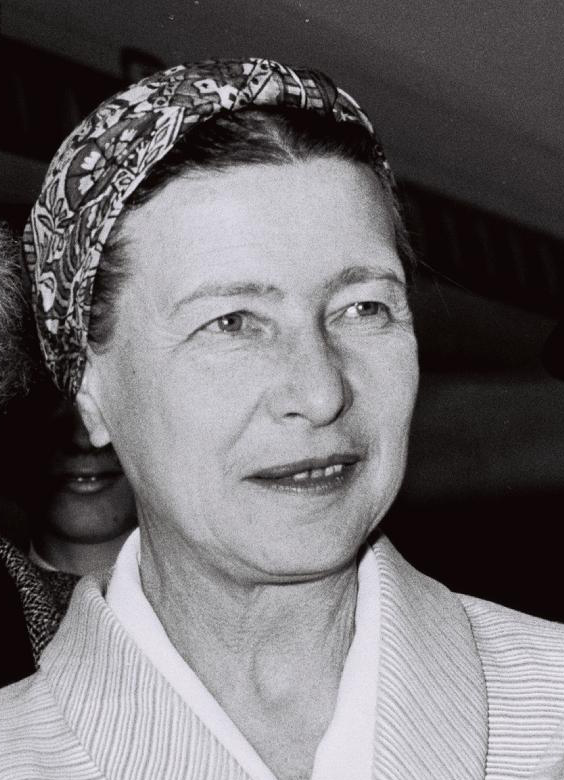
Beauvoir argued for the liberation of women from oppressive social constructs, advocating for equality and self-determination. Her pioneering ideas laid the foundation for the second wave of feminism, inspiring women around the world to question and challenge traditional gender roles.
Simone de Beauvoir’s intellectual contributions and feminist advocacy continue to fuel the ongoing fight for gender equality.
36. Boudicca (c. 30-61)
Not many know the history of Boudicca, also known as Boadicea. She was a Celtic queen who is remembered for her fierce resistance against Roman rule in ancient Britain.
Following the death of her husband, Boudicca led an uprising against the Roman occupiers. She rallied various Celtic tribes in a rebellion that threatened Roman authority. Her military campaigns resulted in several victories and the destruction of Roman settlements.
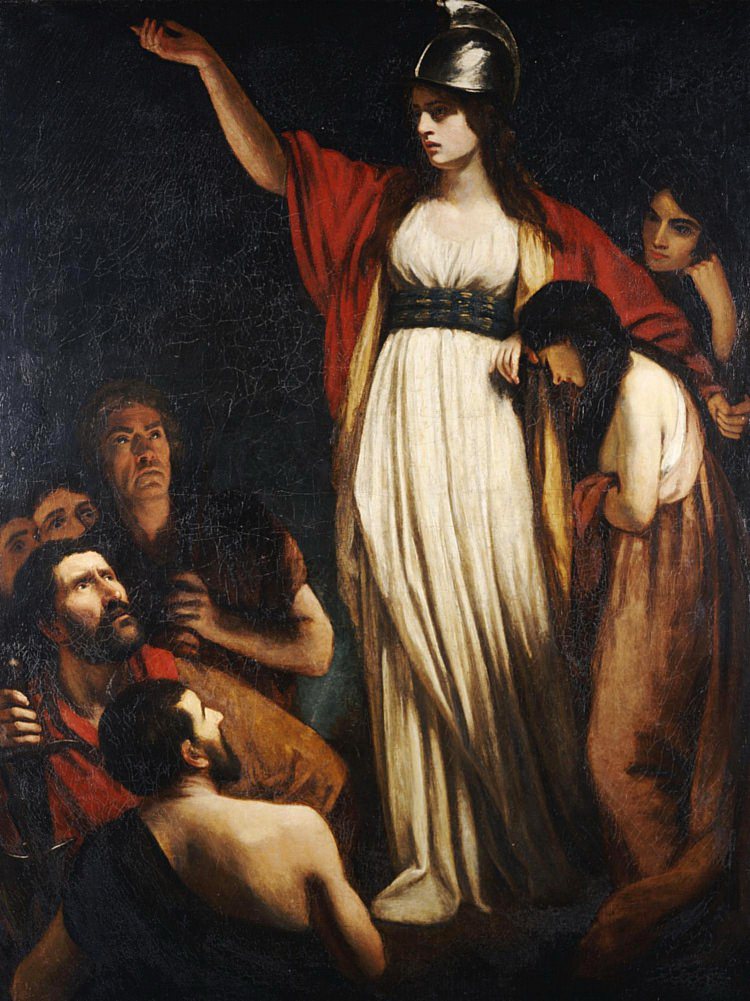
Boudicca’s courageous leadership and determination inspired others to stand against Roman imperialism. Although ultimately defeated by the Romans, her legacy as a symbol of resistance and Celtic identity endures.
Her rebellion certainly forever altered the history of ancient Britain.
37. Catherine the Great (1729-1796)
Catherine the Great, Empress of Russia, transformed Russian history with her ambitious reforms and expansive rule.
Ascending to the throne after a coup d’état, Catherine embarked on a series of modernization efforts. She promoted education, arts, and infrastructure development. She also expanded Russia’s territory through military conquests, solidifying its position as a major European power.
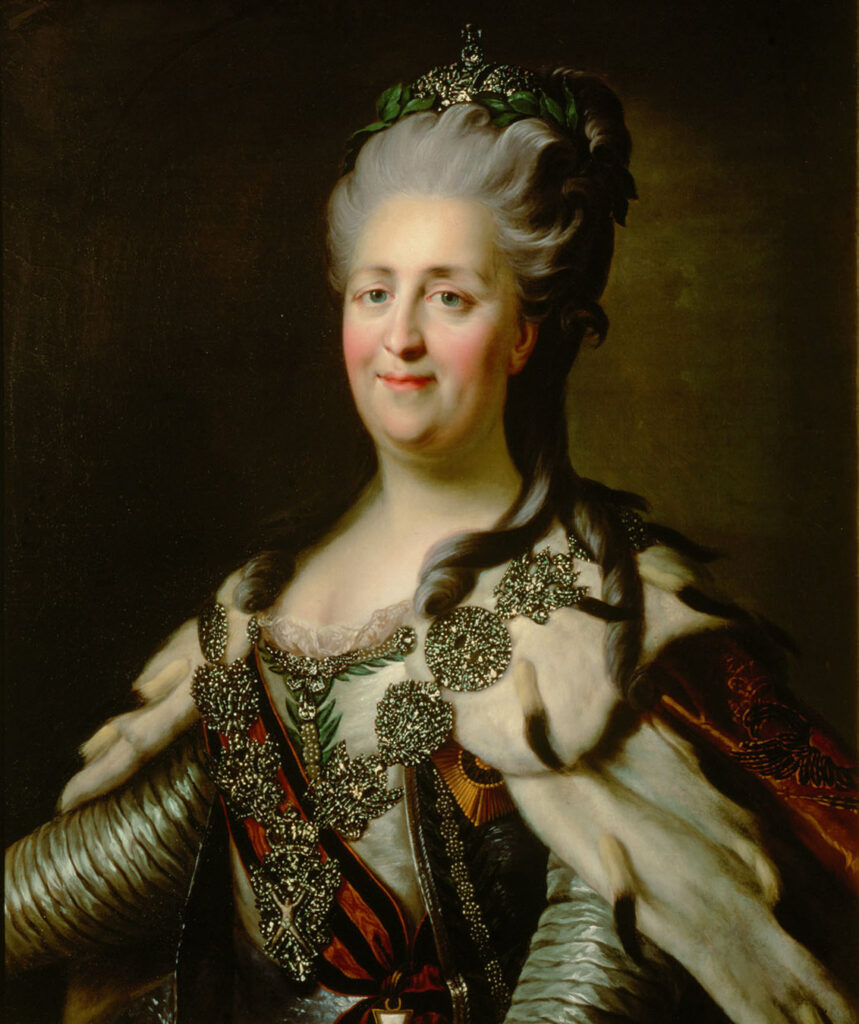
Catherine’s enlightened policies earned her recognition as a leading figure of the Enlightenment era. Her reign witnessed significant advancements in education, healthcare, and governance.
Altogether, Catherine the Great’s influential reign deeply influenced Russian history and European politics.
38. Hillary Clinton (1947-)
Hillary Clinton, a prominent American politician, diplomat, and advocate, is well-known among Americans today.
As First Lady, she played an active role in policy initiatives, particularly in the areas of healthcare and women’s rights. Clinton later served as a U.S. Senator and Secretary of State.

She became the first woman to win the presidential nomination of a major political party in 2016. Her historic candidacy broke barriers and inspired women across America.
Despite emerging as a controversial figure amidst growing political polarization, Clinton’s lifelong position in public service, policymaking, and diplomacy has certainly left an enduring impact on American politics and paved the way for future generations of women leaders.
39. Jane Goodall (1934-)
Jane Goodall is the world’s foremost primatologist and conservationist. She is responsible for bringing environmental protection to the minds of many.
Goodall’s studies on chimpanzees in Gombe Stream National Park in Tanzania revolutionized our understanding of primate behavior. It challenged prevailing scientific beliefs, highlighting the importance of environmental stewardship.
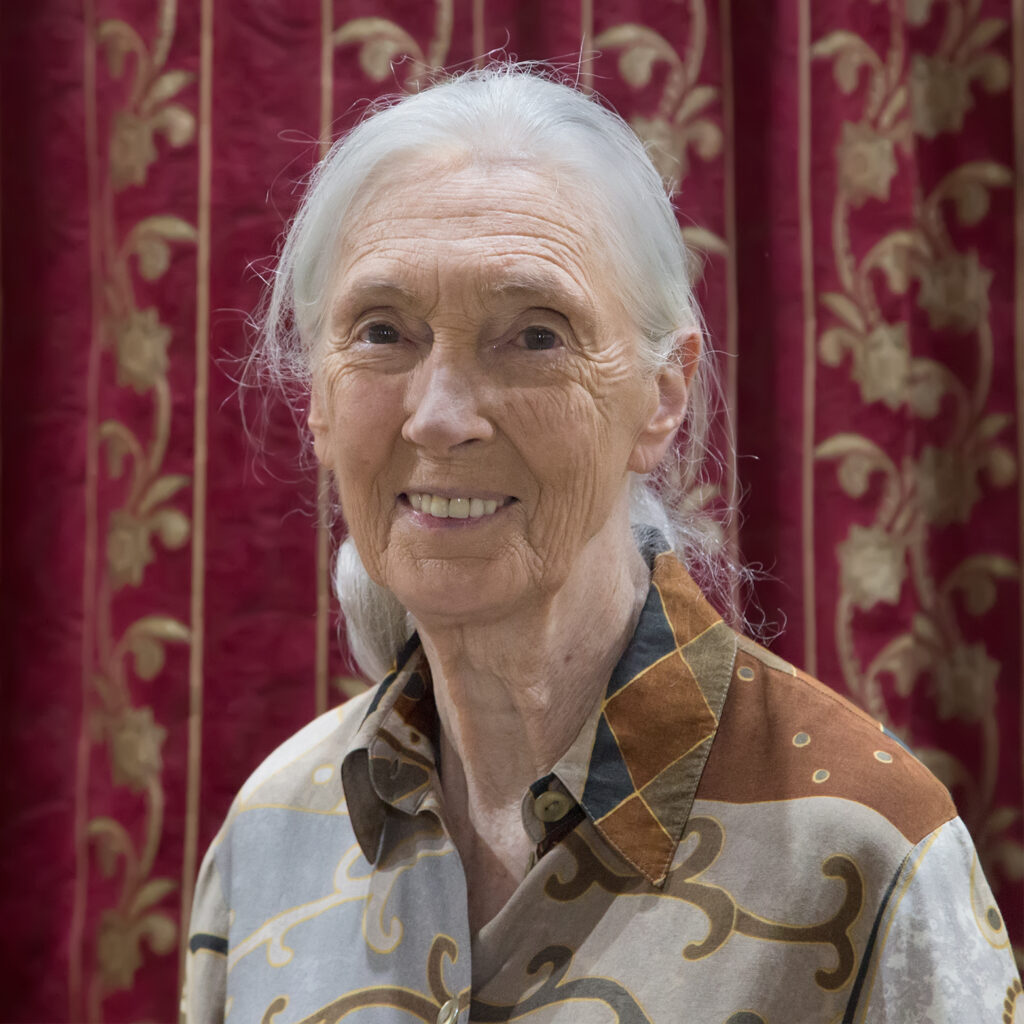
Beyond her scientific contributions, Goodall is a passionate advocate for animal welfare, habitat preservation, and sustainability.
Through her organization, the Jane Goodall Institute, she has empowered communities and inspired generations to take action for a more sustainable future. Goodall’s work has sparked global awareness and inspired a new generation of environmental leaders.
40. Empress Cixi of China (1835-1908)
Empress Dowager Cixi was a powerful figure in late Qing Dynasty China. She rose from a concubine to becoming the de facto ruler of China.
Once in power, Cixi implemented crucial reforms. This included modernizing the military and infrastructure and promoting education. She also played a pivotal role in resisting foreign influence, safeguarding China’s sovereignty during a period of instability.
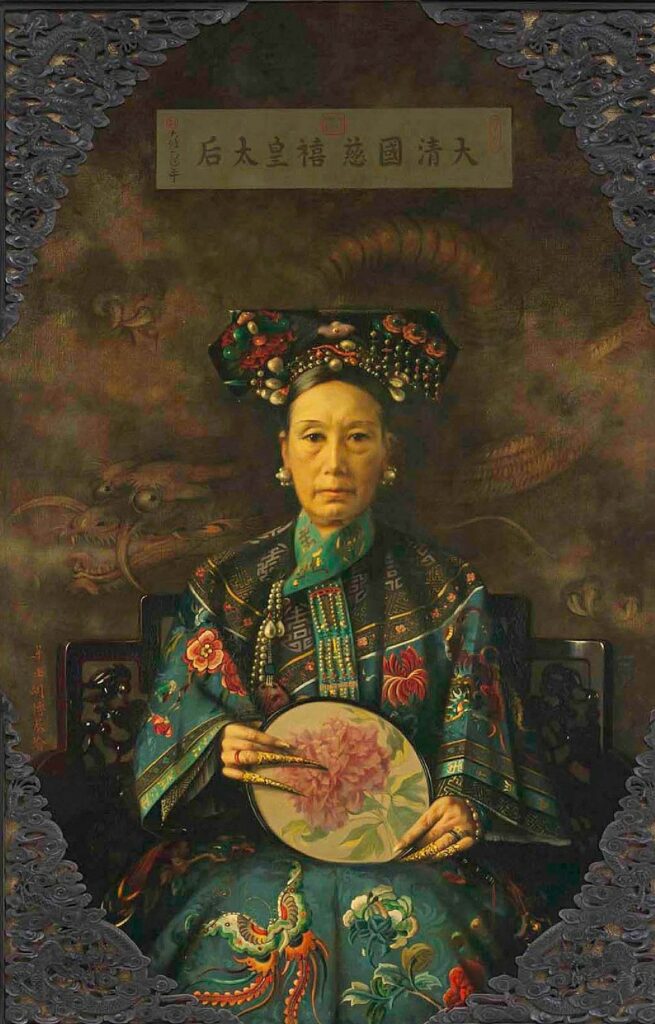
Cixi’s reign was notable for the modernization of China’s industries, the expansion of railways, and the promotion of women’s education.
Her influence and policies, though controversial, marked a period of significant transformation in China’s history. She laid the foundation for subsequent reforms in the country.
41. Edith Cowan (1861-1932)
Edith Cowan was an Australian social reformer and politician. She left a massive mark on modern Australian history.
The first woman elected to the Australian parliament, Cowan was key in earning legislation for women’s rights, child welfare, and social justice.
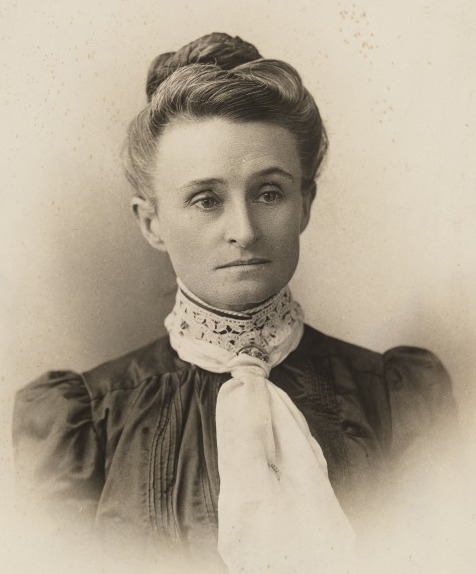
She tirelessly advocated for the establishment of children’s courts, women’s legal rights, and the provision of housing and support for disadvantaged communities. Her efforts improved the lives of women and children across Australia.
Cowan’s pioneering work in the political arena paved the way for greater gender equality and social progress, leaving a lasting impact on all of Australian society.
42. Sappho (c. 630-570 BC)
Returning to antiquity, the influence of Sappho, an ancient Greek poet from Lesbos, stands out.
Through her lyrical poetry and literature, Sappho’s is one of the few female voices from ancient Greece to have survived.
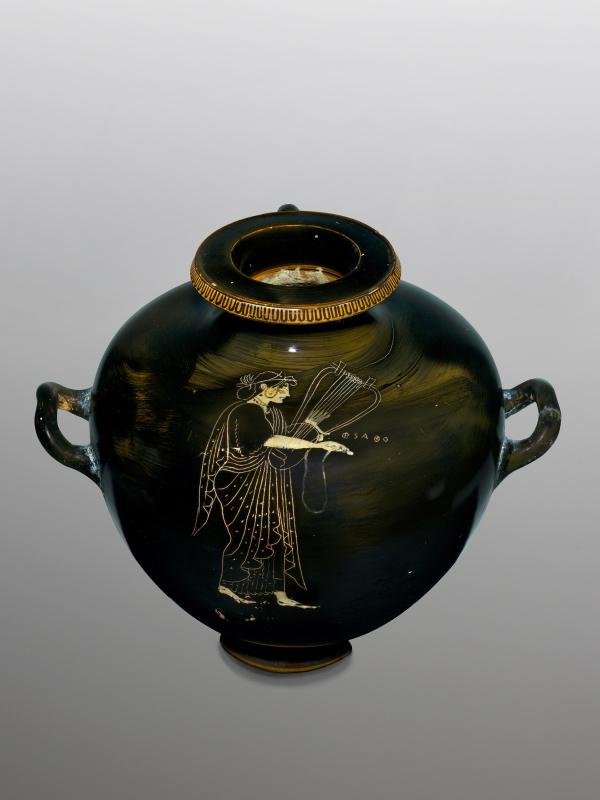
She explored themes of love and desire. Her evocative verses, often sung accompanied by a lyre, captured the essence of human experience and celebrated the beauty of the natural world.
Sappho’s work inspired generations of poets and writers. Her works shaped the development of lyric poetry and left an enduring legacy as one of the greatest poets of antiquity.
43. Indira Gandhi (1917-1984)
Indira Gandhi was the first female Prime Minister of India. She is remembered for her strong leadership and significant contributions to Indian politics.
Serving from 1966 to 1977 and again from 1980 until her assassination in 1984, Gandhi deeply shaped India’s domestic and foreign policies. She implemented social welfare programs, promoted agricultural advancements, and led India through a period of significant economic growth.
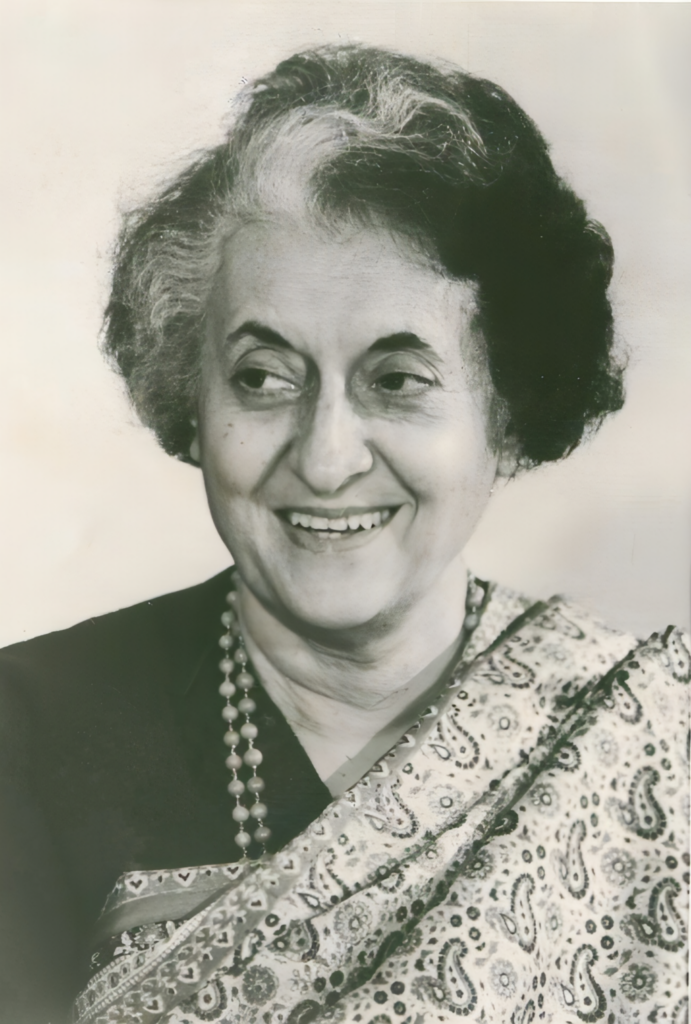
Gandhi’s firm stance during the Indo-Pakistani War of 1971 even resulted in the creation of Bangladesh.
Despite controversy and political challenges, Indira Gandhi’s legacy as a powerful stateswoman and advocate for progress continues to inspire leaders around the world.
44. Bertha von Suttner (1843-1914)
Bertha von Suttner was an Austrian writer and peace activist. As the first woman to be awarded the Nobel Peace Prize in 1905, von Suttner was a leading figure in the peace movement of the late 19th and early 20th centuries.
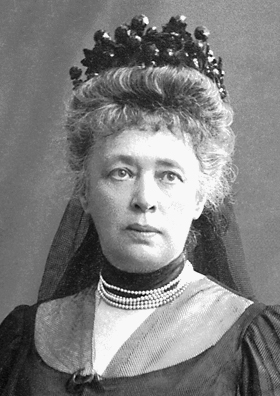
Her influential novel “Lay Down Your Arms” highlighted the horrors of war. It advocated for peaceful resolutions to conflicts.
Von Suttner’s activism and advocacy for international arbitration and disarmament also paved the way for the establishment of international peace organizations. This was a legacy whose importance can not be understated.
45. Malala Yousafzai (1997-)
Most of us have probably heard the story of Malala Yousafzai.
After surviving a targeted attack by the Taliban in 2012, Yousafzai emerged as a prominent global advocate for education and women’s empowerment. Her resilience and unwavering determination inspired a global movement and her bestselling memoir, “I Am Malala,” made waves across the world.
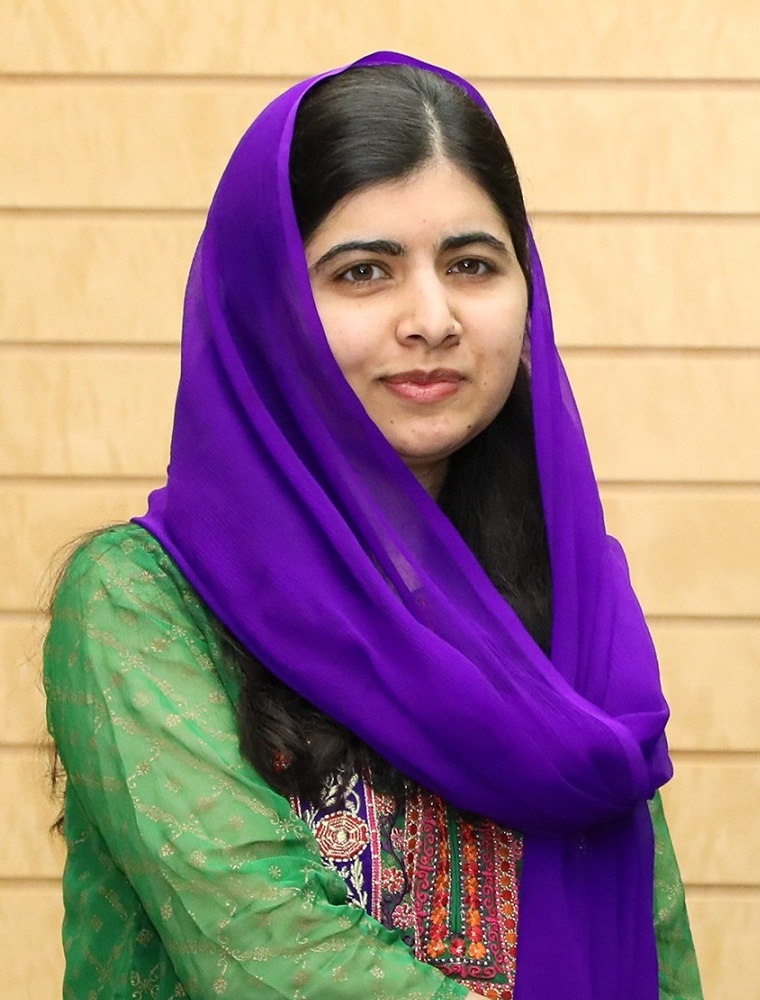
She also co-founded the Malala Fund to ensure every girl has access to 12 years of education. Her efforts led to numerous awards, including receiving the Nobel Peace Prize in 2014.
Malala continues her work today, empowering girls and women to pursue education and achieve their full potential.
46. Golda Meir (1898-1978)
Golda Meir was an Israeli stateswoman and the first female Prime Minister of Israel. She reshaped history with her leadership and contributions to the development of the State of Israel.
She served as Prime Minister from 1969 to 1974. Meir was crucial in strengthening Israel’s security, negotiating peace agreements, and fostering economic growth. Her resolute leadership during the Yom Kippur War further demonstrated her commitment to Israel’s survival.
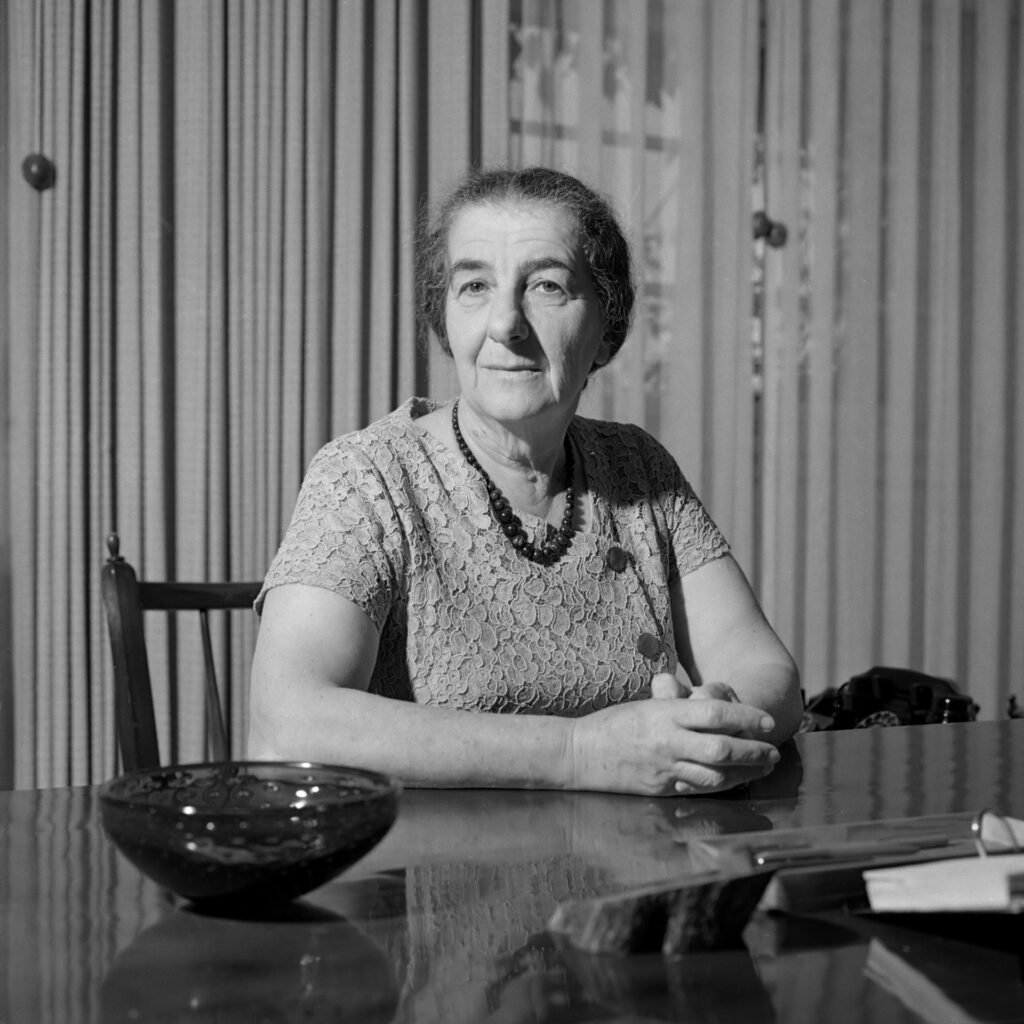
Her strong leadership and dedication to the welfare of her country was foundational to Israeli history and also inspired generations of women to become leaders like her.
47. Susan B Anthony (1820-1906)
Susan B. Anthony was pivotal in the fight for women to gain the right to vote.
The American suffragist and women’s rights activist spent her life pushing for women’s right to vote and equal rights under the law. She co-founded the National Woman Suffrage Association and dedicated herself to organizing campaigns, delivering speeches, and leading demonstrations.
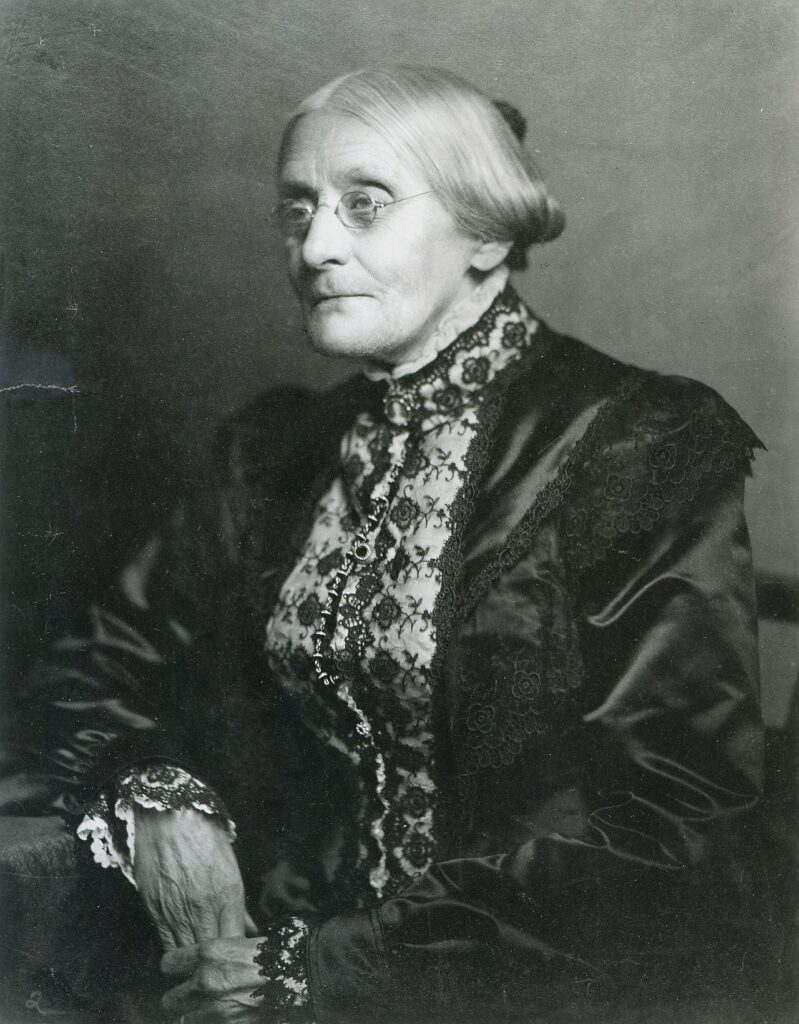
Anthony’s advocacy and determination laid the groundwork for the eventual ratification of the 19th Amendment. This granted women the right to vote in the United States.
Her legacy as a fearless advocate for women’s rights continues to inspire the ongoing pursuit of gender equality globally.
48. La Malinche (c. 1500 – c. 1529)
La Malinche, also known as Doña Marina, was a historical figure of indigenous Mexican descent. She played a complex role during the Spanish conquest of Mexico.
She was enslaved by Hernán Cortés. She also served as an interpreter and advisor – a vital intermediary between the Spanish conquistadors and the indigenomaus peoples.
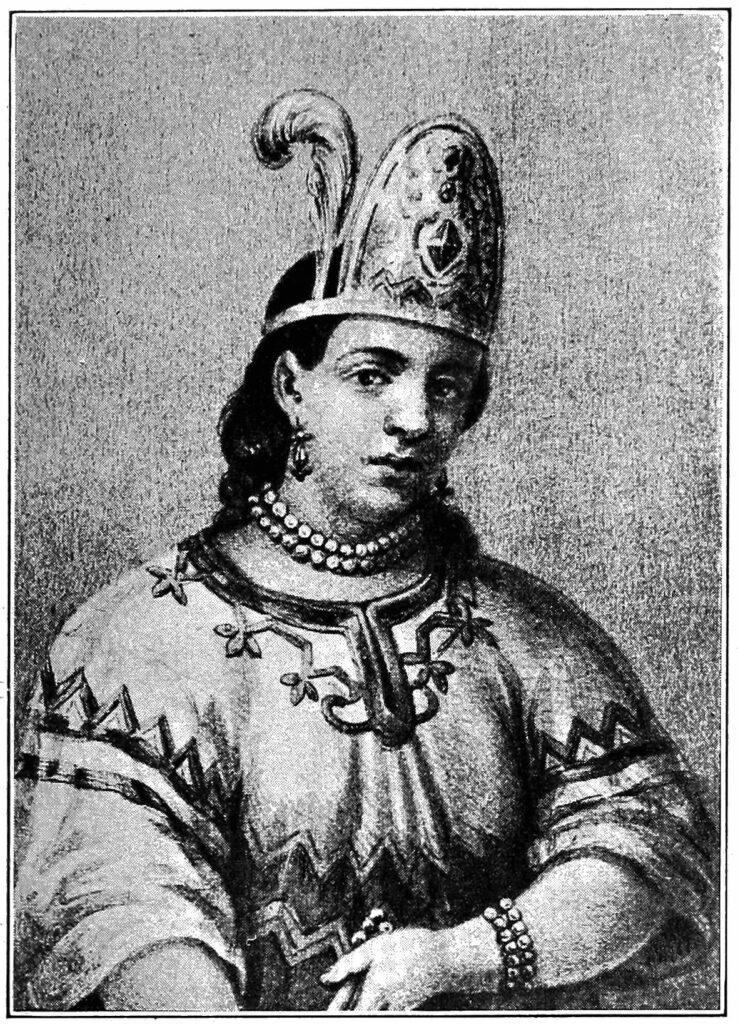
Her linguistic skills and cultural knowledge facilitated communication and negotiation. This ultimately contributed to the downfall of the Aztec Empire. However, La Malinche’s role remains controversial, as she has been both praised for her intelligence and criticized as a traitor to her own people.
Regardless, her presence during this transformational period of history forever changed the course of history in the New World.
49. Ruth Bader Ginsburg (1933-2020)
Ruth Bader Ginsburg made her mark on history with a groundbreaking legal career. She was appointed as a justice to the Supreme Court in 1993 under President Clinton.
Ginsburg became a leading voice for progressive causes over her long career. Particularly in cases on women’s rights, reproductive rights, and LGBTQ+ rights.
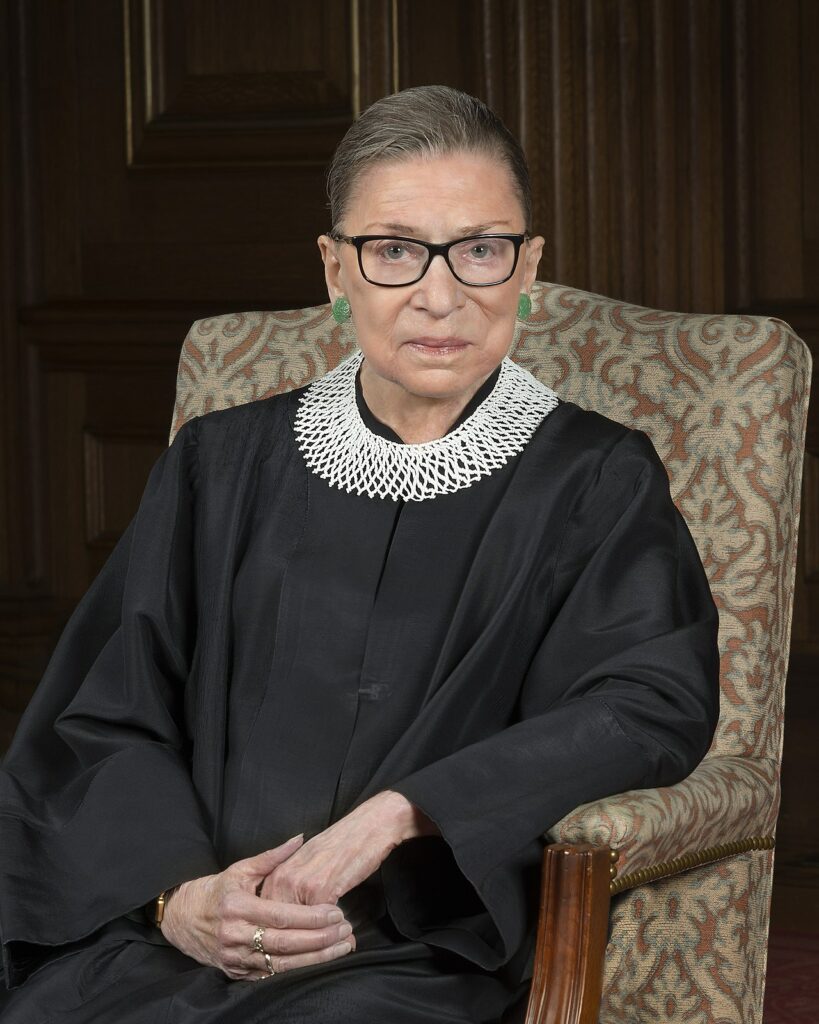
Her sharp legal mind and passionate dissents made her a beloved figure and an icon. Ginsburg’s relentless pursuit of equal rights and her emphasis on social justice left a profound impact on American law and society.
Her legacy as a champion of women’s rights and a tireless advocate for justice continues to inspire generations.
50. Queen Victoria of England (1819-1901)
Queen Victoria was one of the longest-reigning monarchs in British history. She transformed history through her influential rule and the impact of the Victorian Era.
She was the queen of the United Kingdom from 1837 to 1901. She presided over a period of immense social, economic, and technological change.
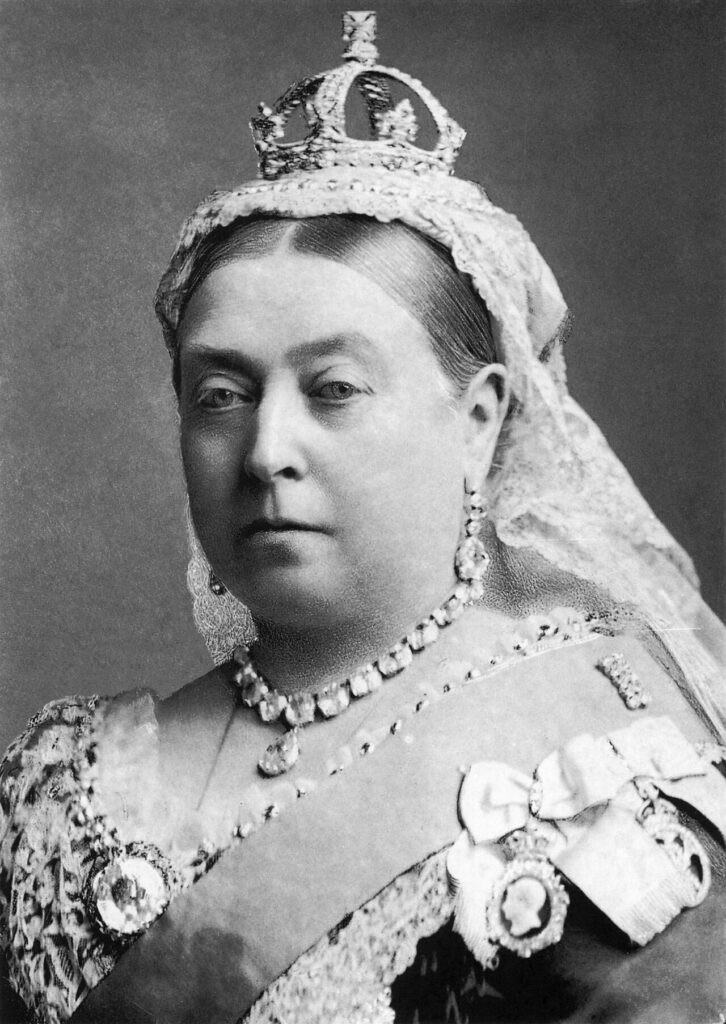
Victoria’s reign saw the expansion of the British Empire, advancements in industrialization, and significant social reforms.
Queen Victoria’s conservative values and moral influence left their mark on Victorian society and continue to shape perceptions of the era. Her reign remains an iconic period in British history, symbolizing an era of unprecedented transformation and progress.

